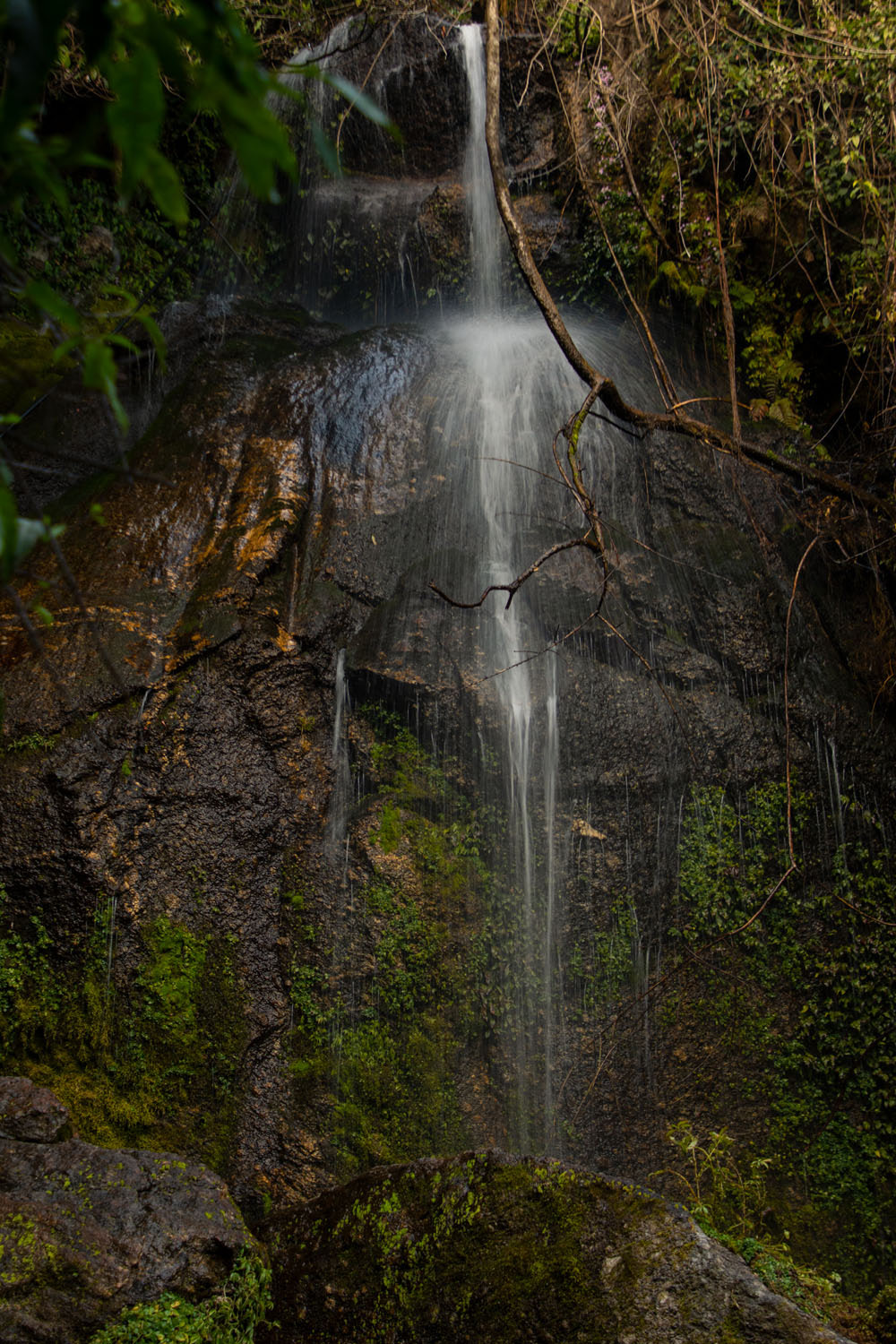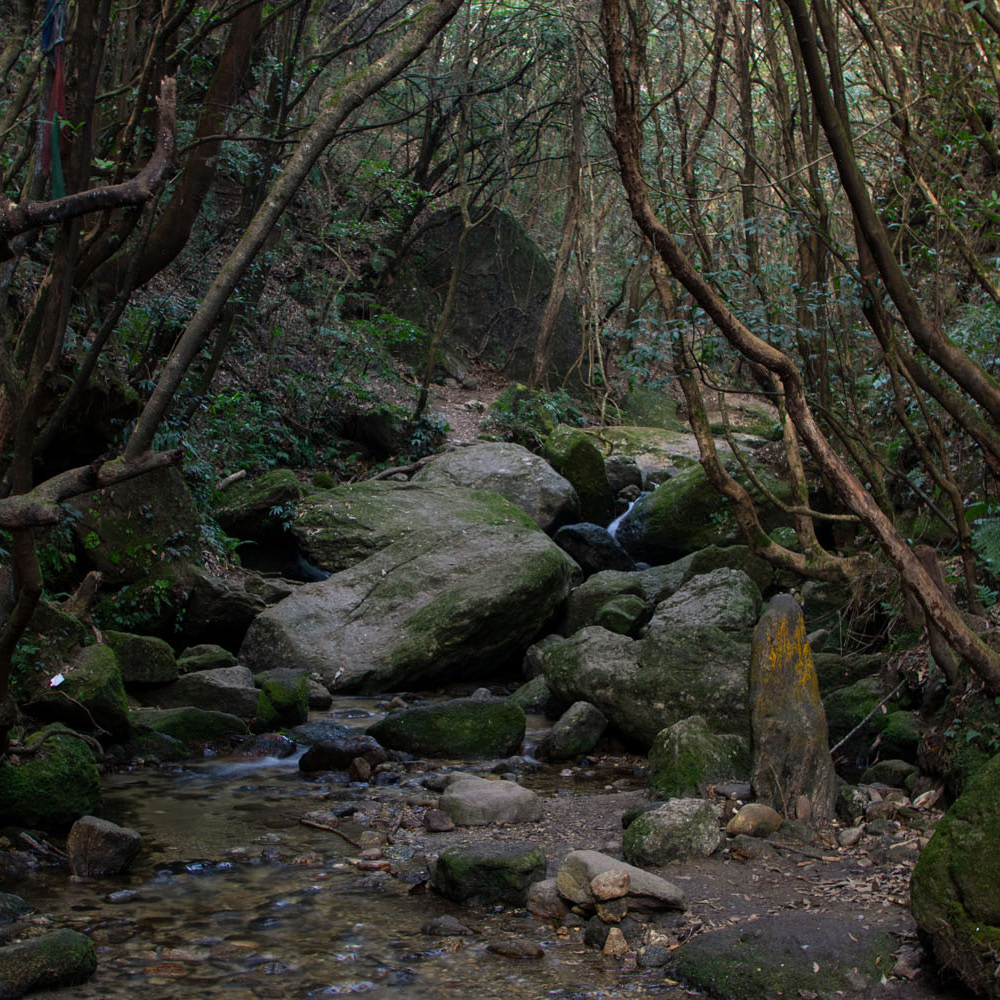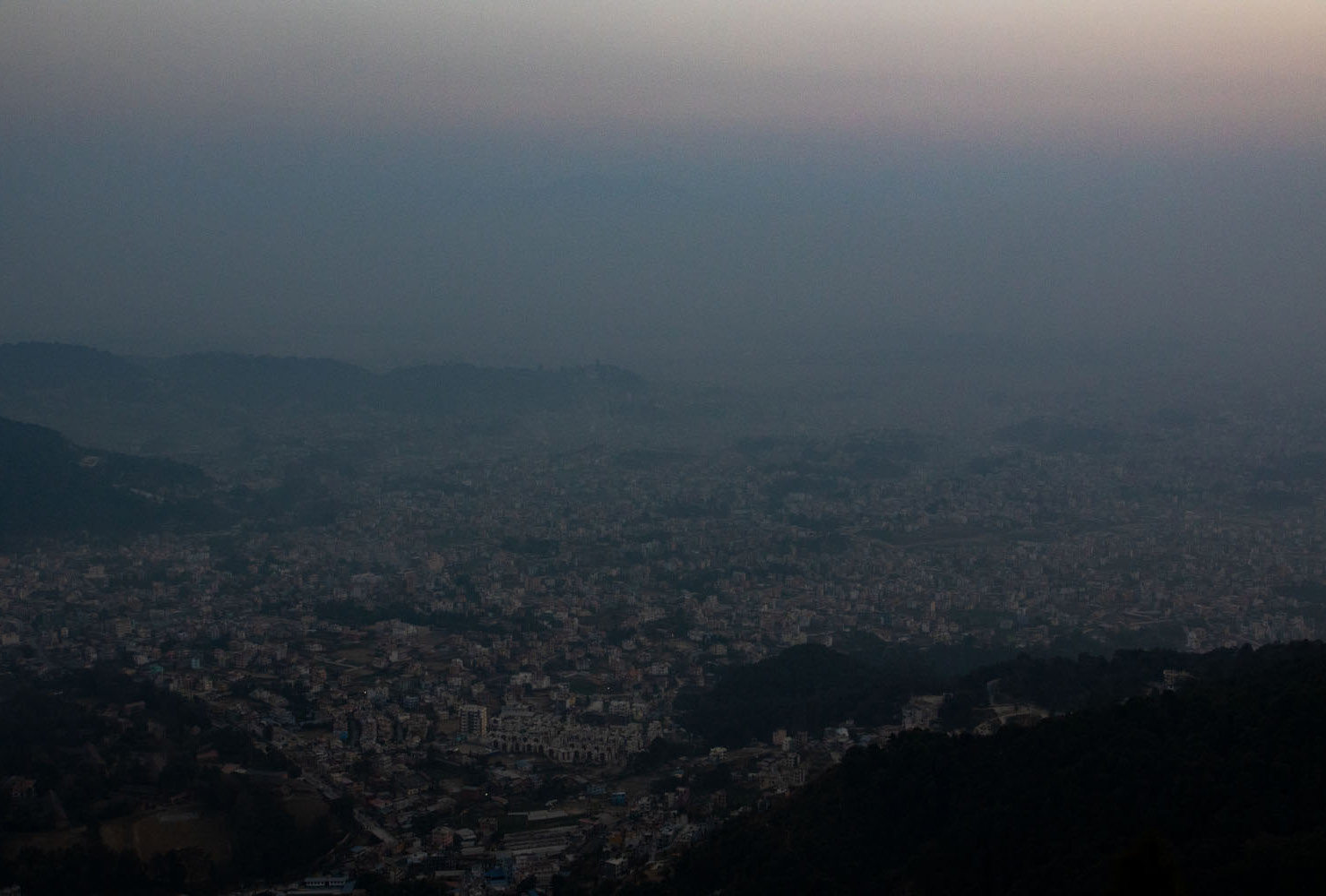Photo story: The milkman of Duwakot
It’s early dawn in Bhaktapur’s Duwakot village and 31-year-old Ram Kumar Basnet is already up and about. Basnet is a dairy farmer and he has milk to deliver. But he must feed and milk the cows first.
He has a five-year lease on the land where he raises his cattle and looks after his family. He lives in a small hut with his wife and their two children—a daughter and a son.
Basnet says even though he was born in Nagaland, India, his ancestral home is in Ramechhap district. He has five brothers and, like him, they too are uneducated and depend on farming for livelihood.
One of the brothers runs a poultry business close to Basnet’s cow farm. The brother also lends a hand in milk-packaging and transport. By the time morning light starts getting brighter, Basnet is ready to hit the road. He ties large milk jars to his motorcycle, a red Honda CB Hornet, and sets out to deliver milk to his customers.
After completing his morning round, he returns home and rests for a while before starting the second-half of his daily work. Basnet has nine cows and two calves to look after. Each cow is milked twice a day, and gives up to nine liters of milk. Basnet says he sells up to 80 liters of milk a day. Besides his regular customers, he also supplies milk to various dairy shops in Bhaktapur and Kathmandu.
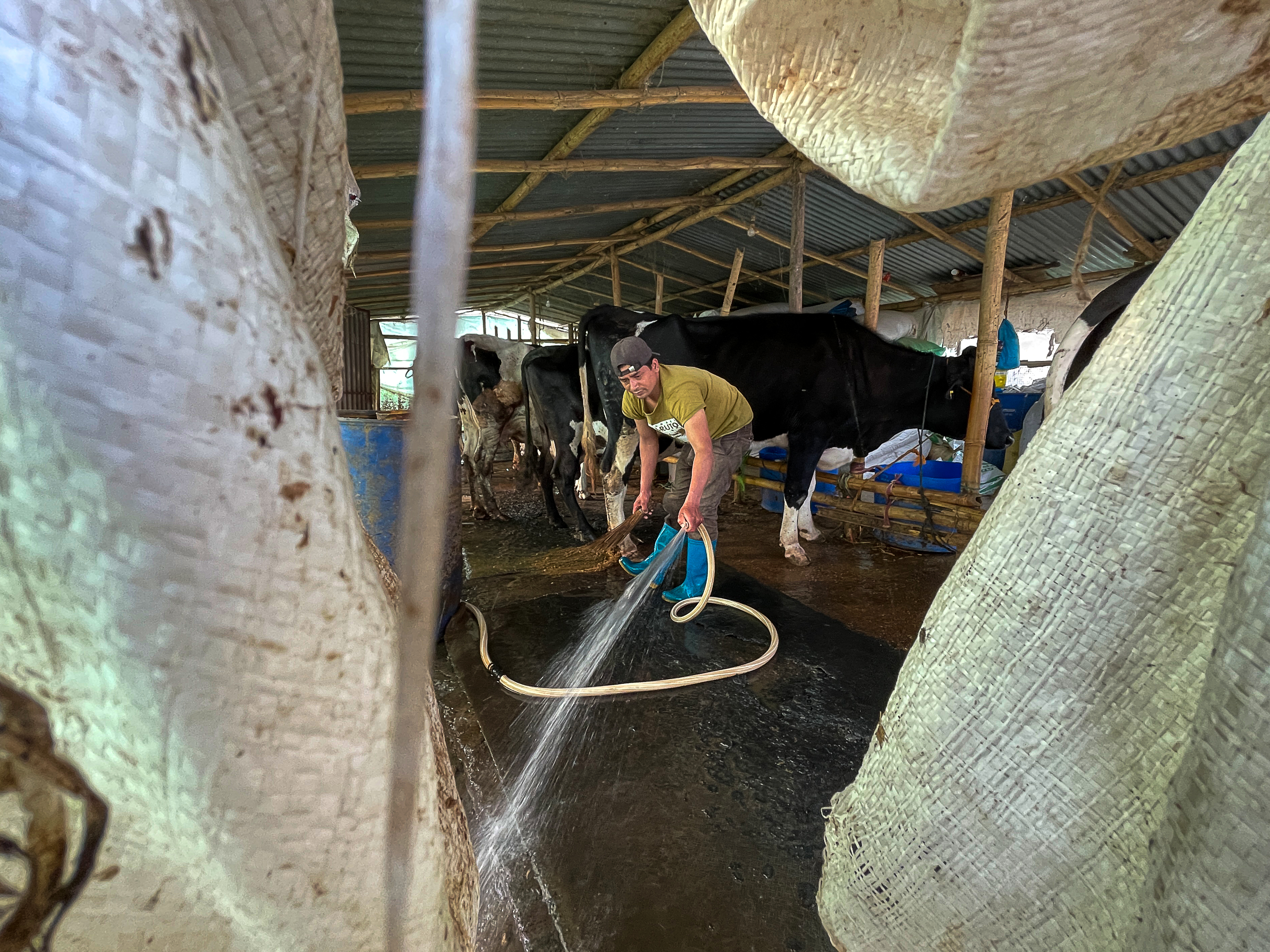
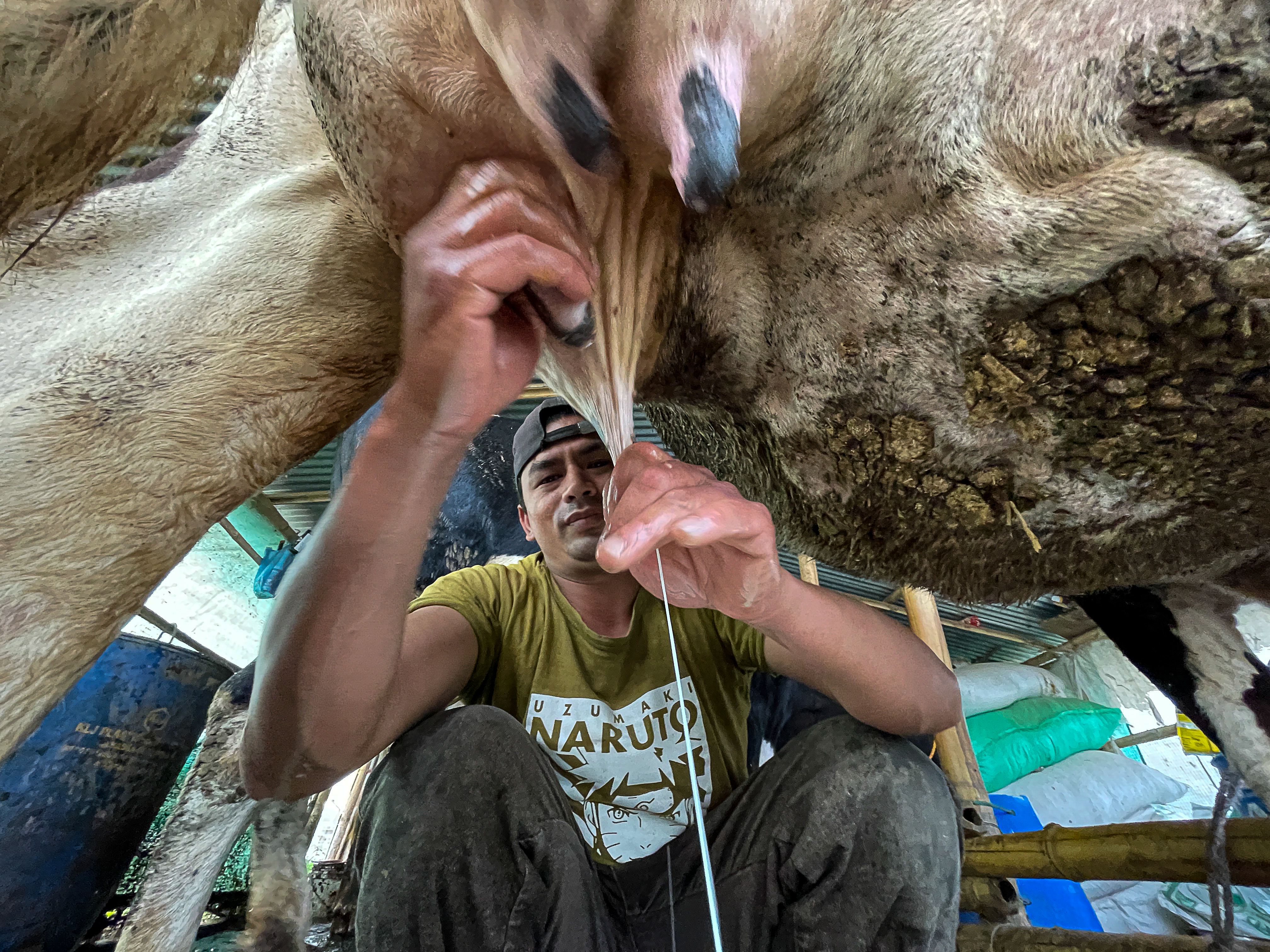

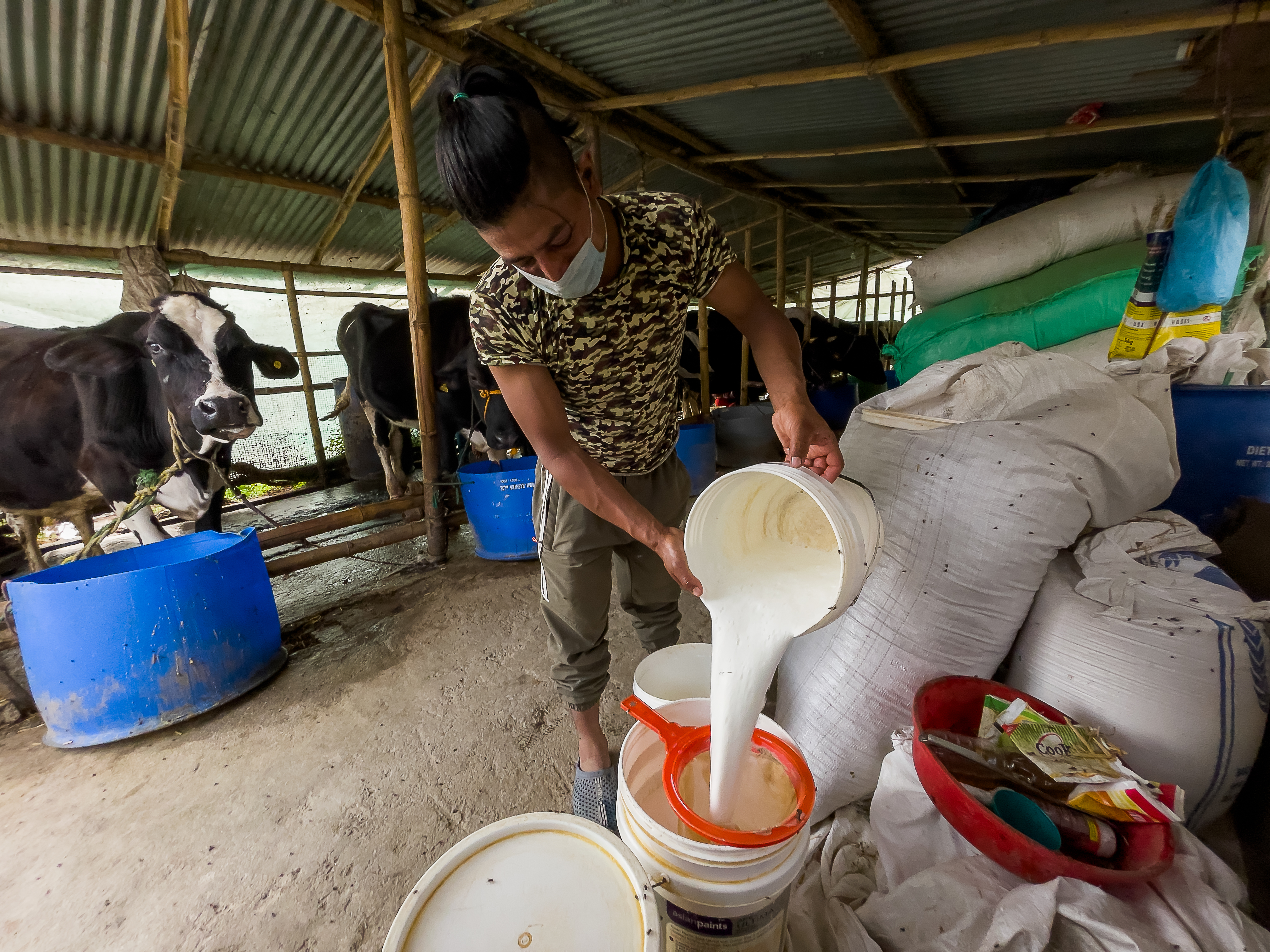
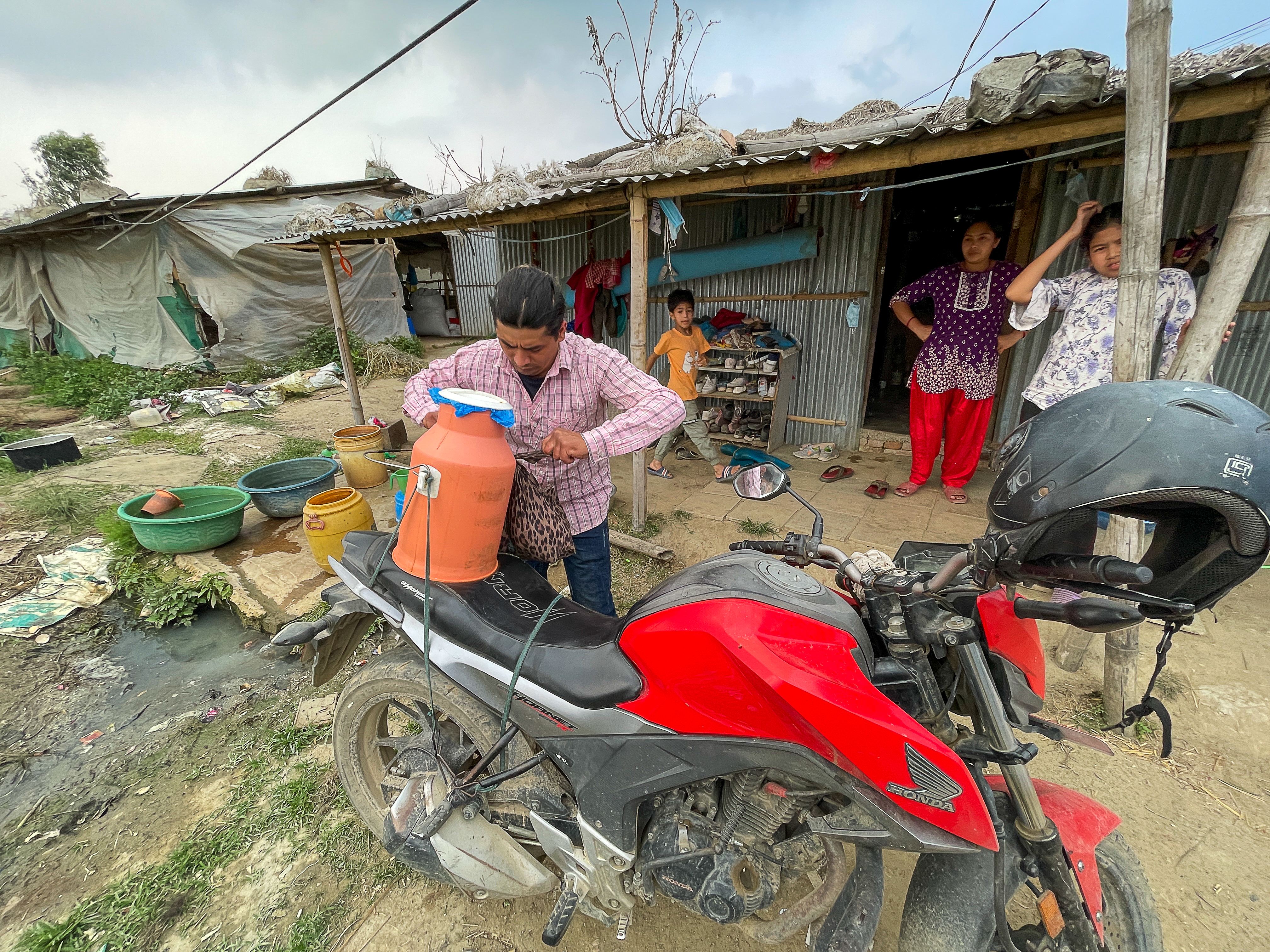
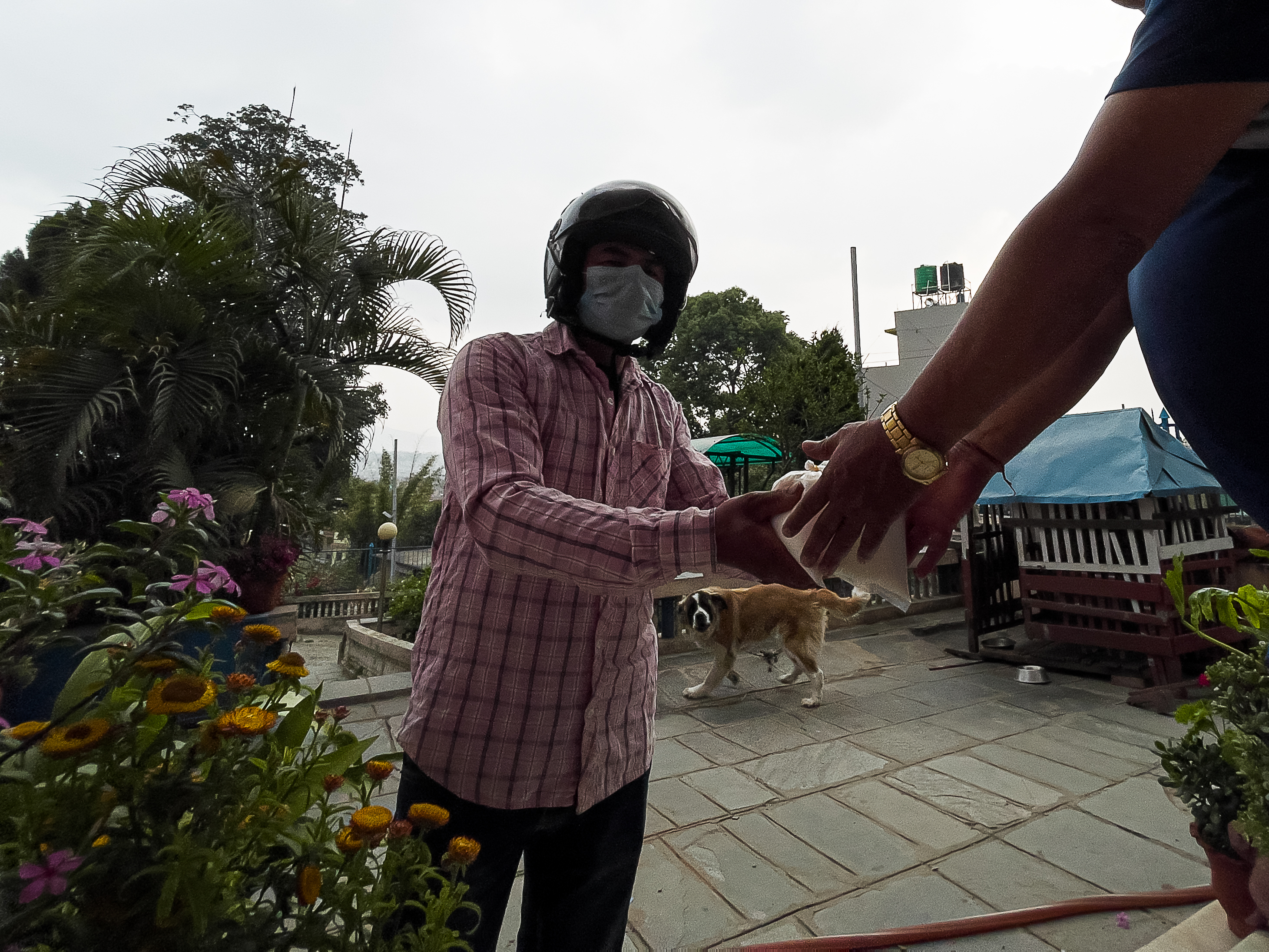
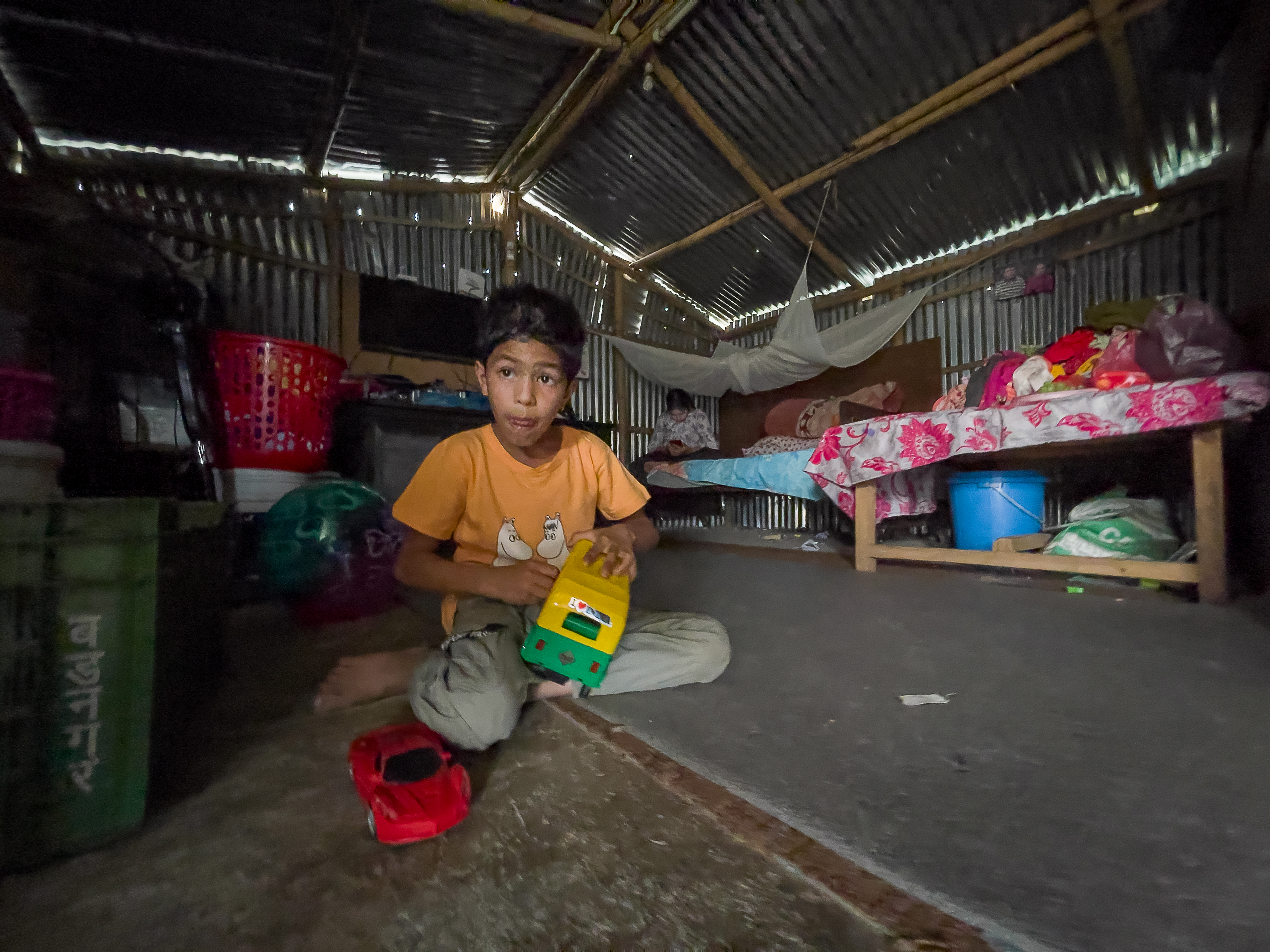
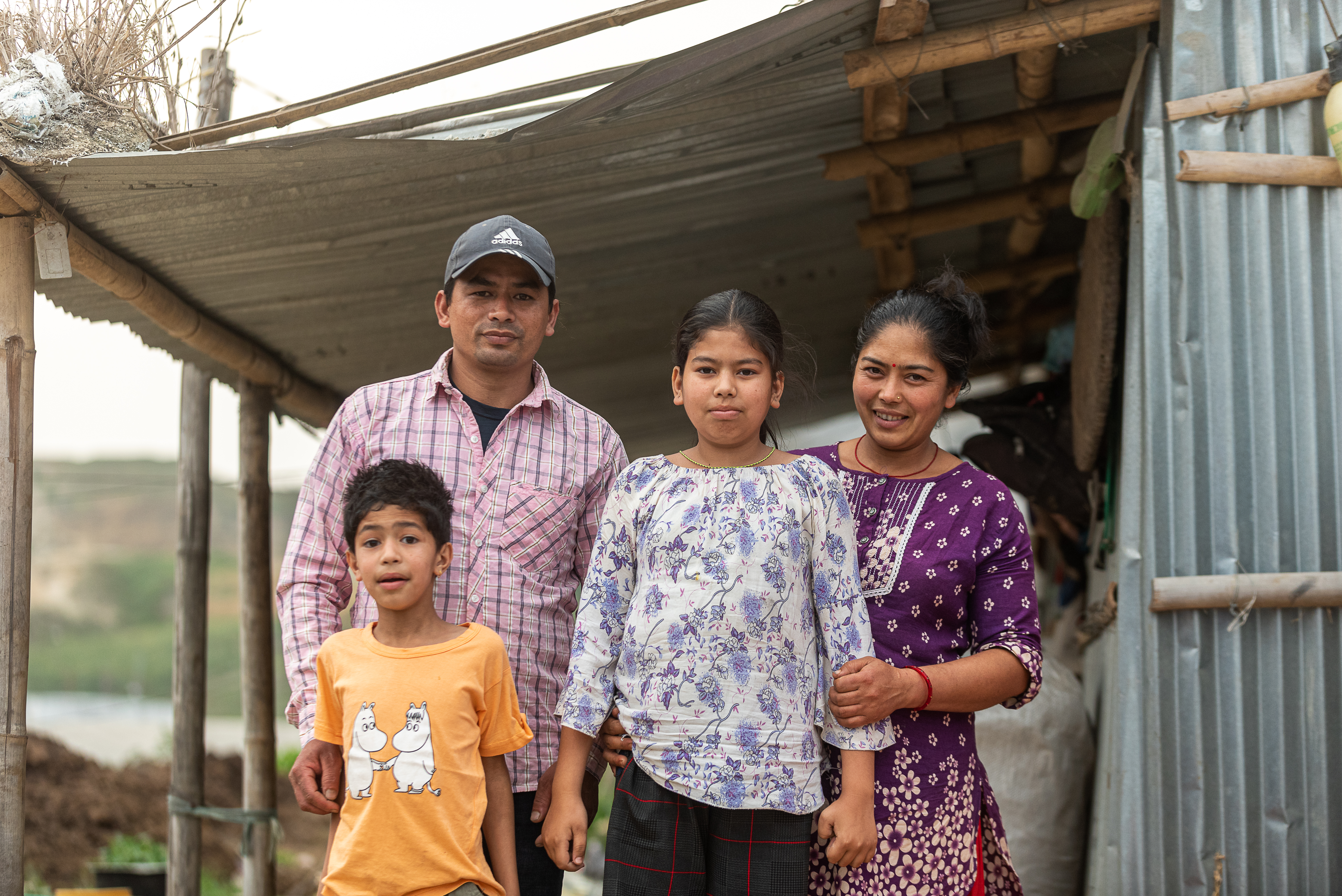
Photo Feature | The Darjeeling boy sinks roots in Kathmandu
Deo Prakash Rai, a Darjeeling lad, came to live with his sister in Kathmandu when he was just 15. He says he never got much education in Darjeeling because of the frequent strikes in the course of the Gorkhaland movement. After arriving in Kathmandu, he started working as an assistant in film sets.
Rai worked in the Nepali film industry for many years before starting a plant and flower business. “I was fond of plants and gardening from an early age,” says the now 50-yearold. “Since I was working in the film industry, I fulfilled my passion for gardening by planting flowers and other plants on the terrace of the house I rented.”
He was also an ace badminton player during his youth and won several national and international trophies. His love, however, has always been gardening. This romance blossomed when he opened Rosedale Nursery at Minbhawan 13 years ago. At his nursery, Rai specializes in exotic flowers and bonsai plants. Some of the bonsai plants in his garden are over 45 years old. They were planted by Rai’s late elder brother in their home garden back in Darjeeling.
Many people have come to him offering high prices for his prized bonsai plants. “But those specific ones are not for sale, no matter how high the offer,” he says.
Besides bonsai, Rai is also interested in growing orchids. He is proud of an award he won for his orchid during a recent flower exhibit. He says he uses Nepal-made compost fertilizers and Dutch technology to take care of the plants and flowers. His cousin Roshan Thulung Rai helps him around in the nursery.
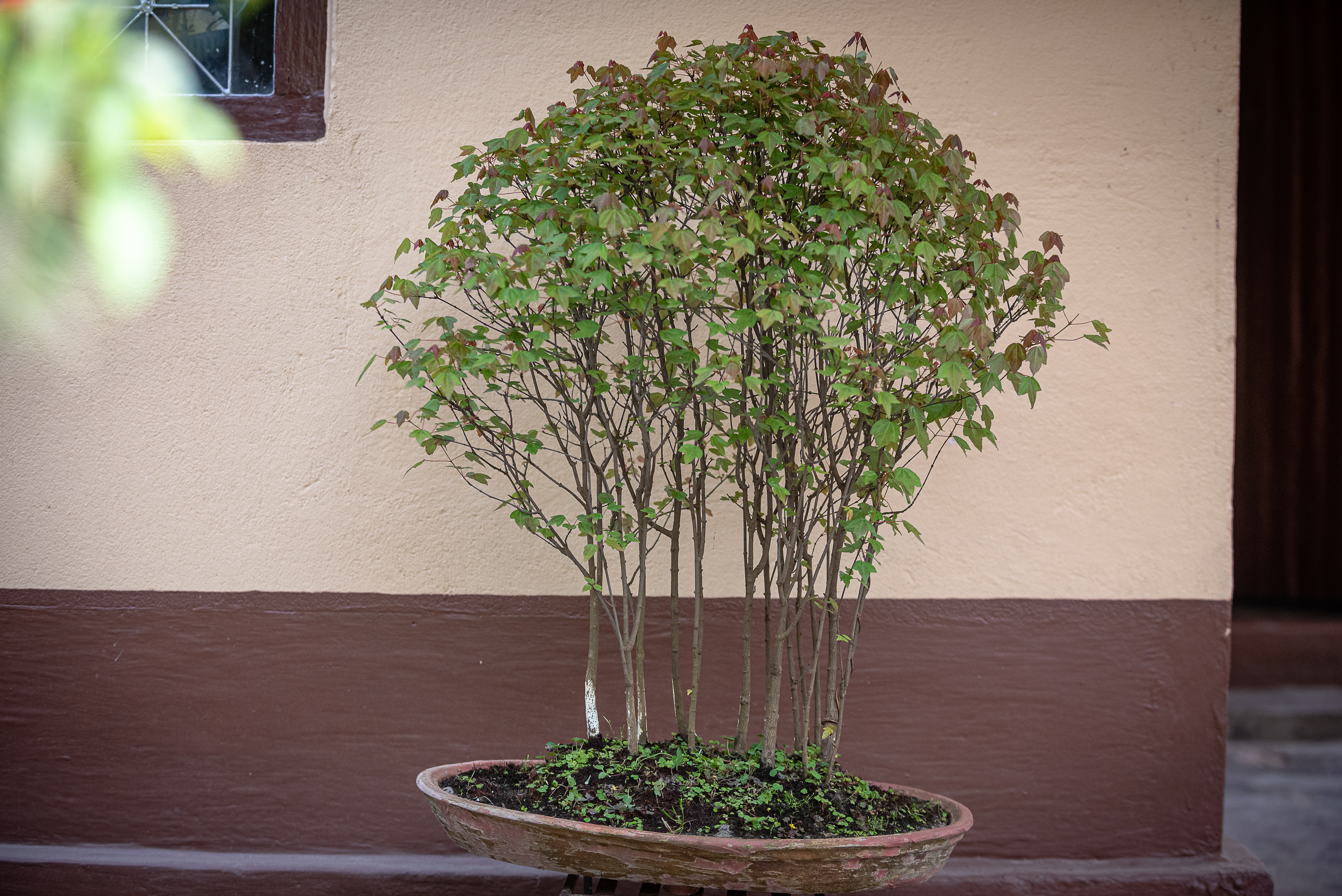
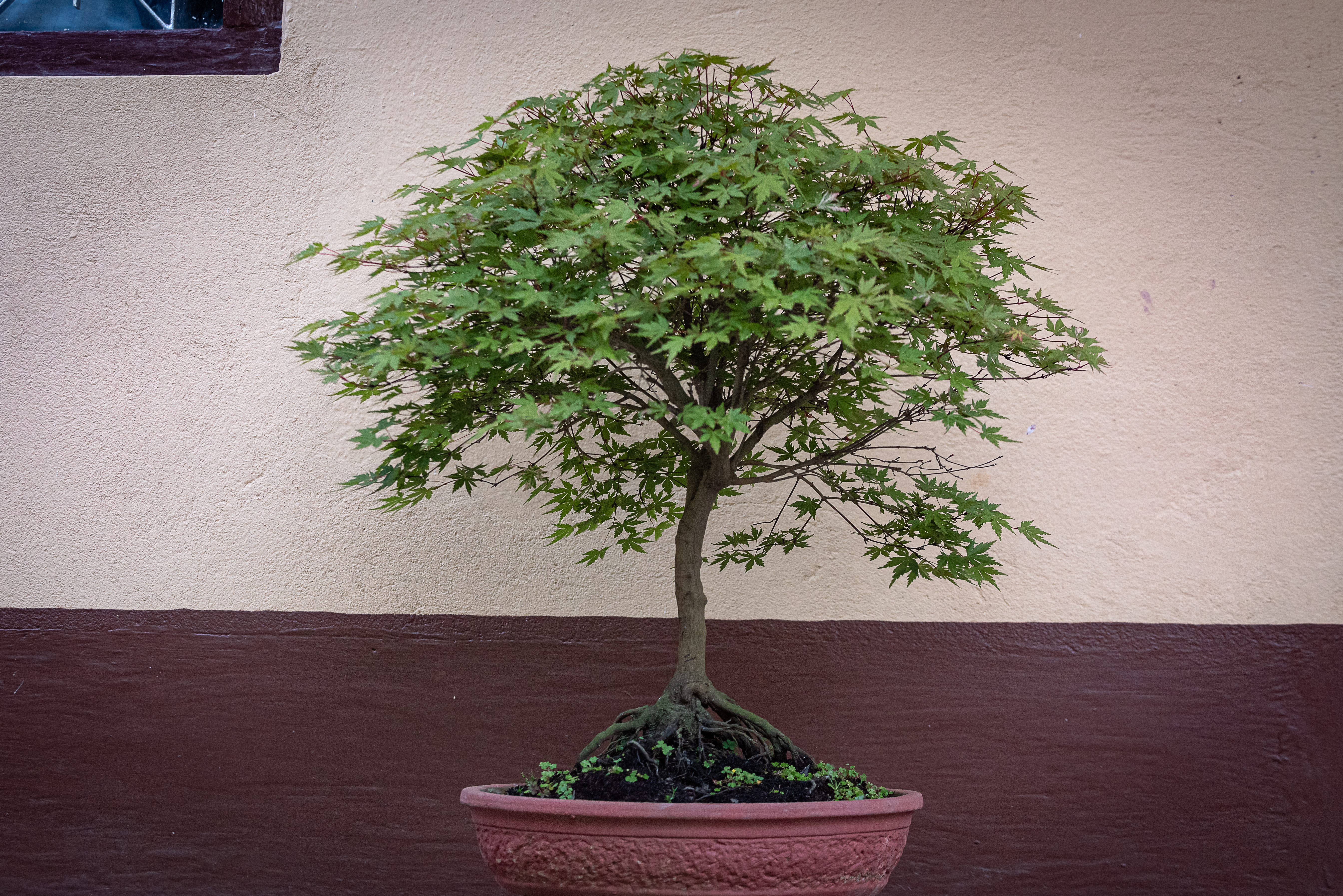

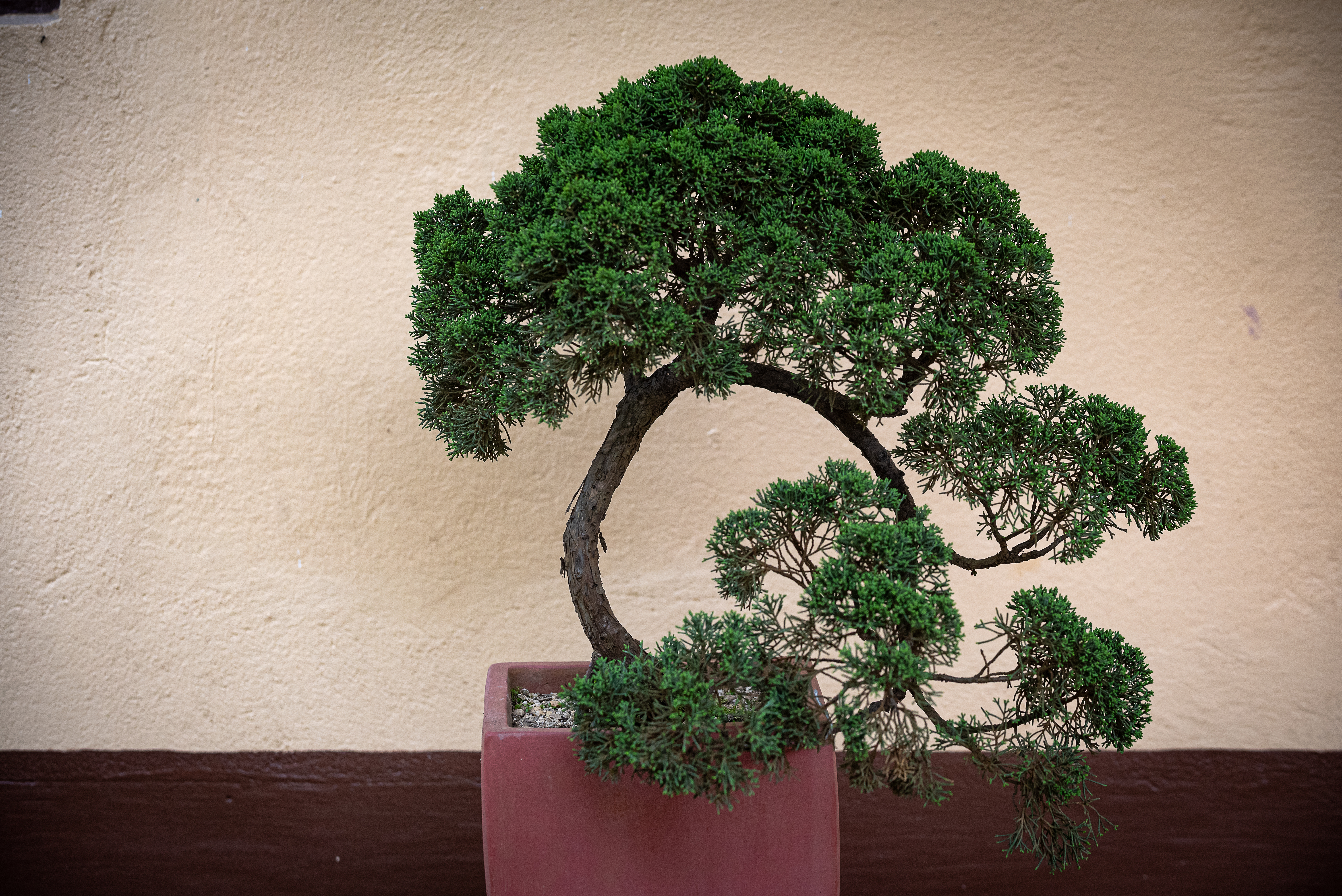
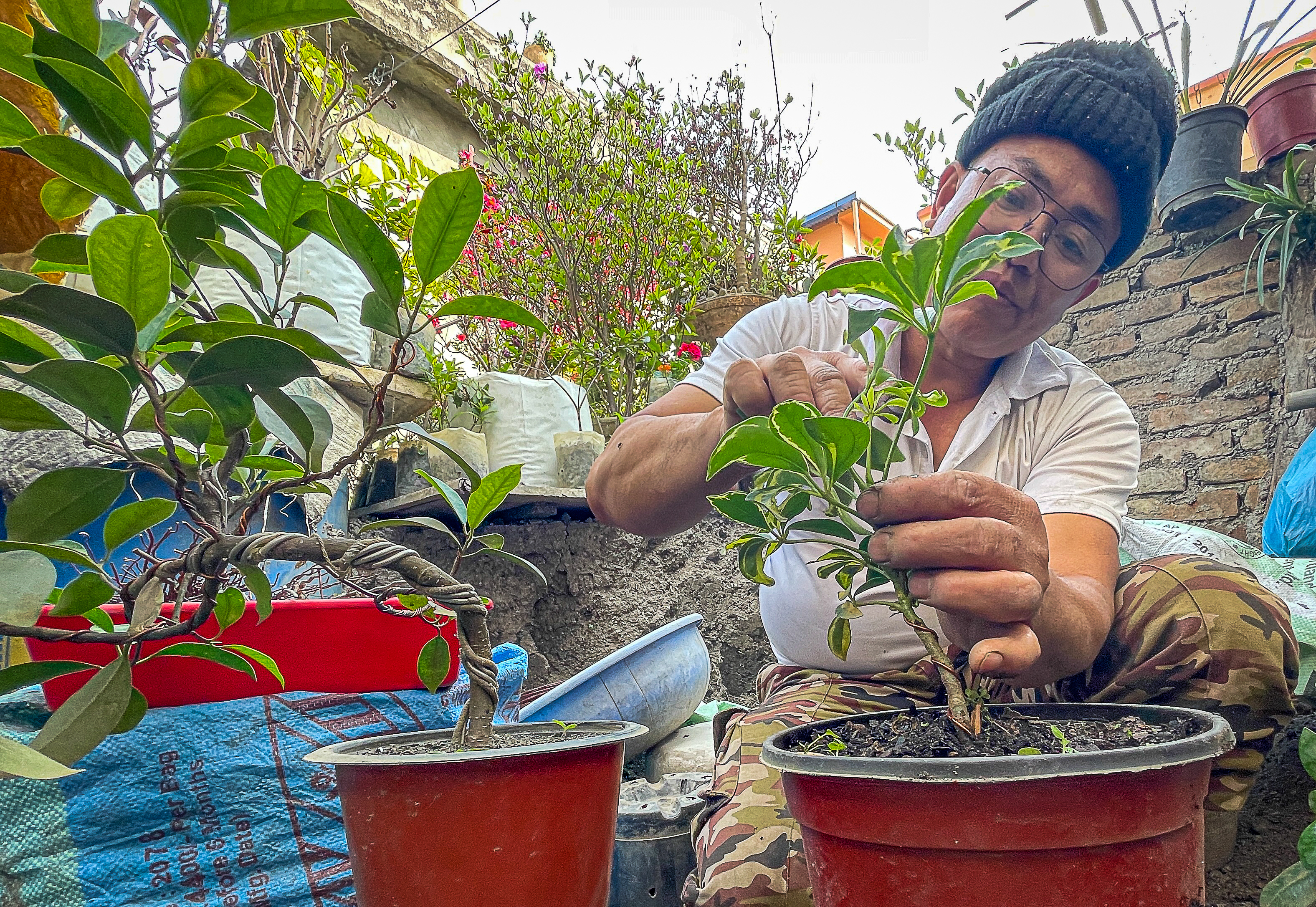
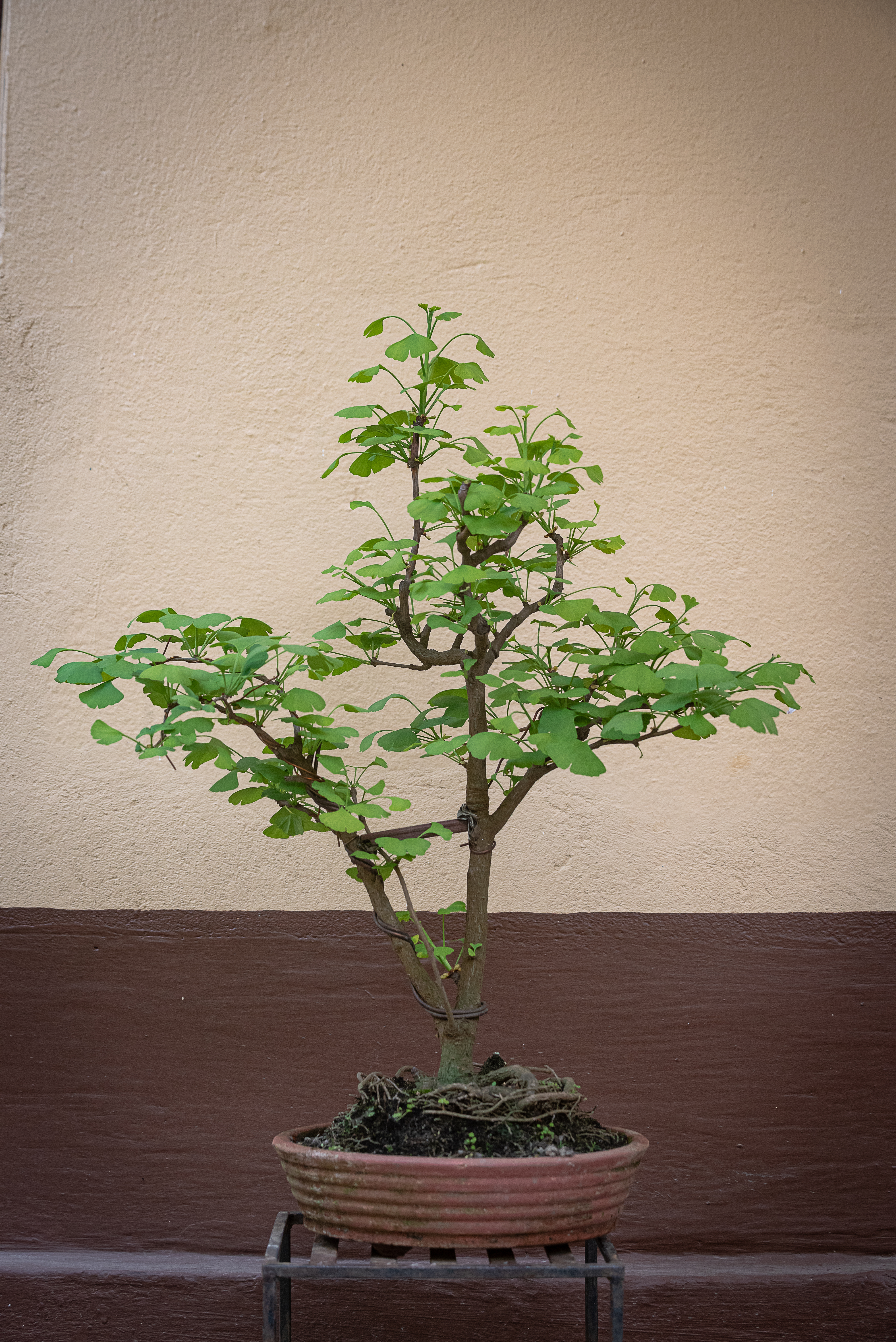
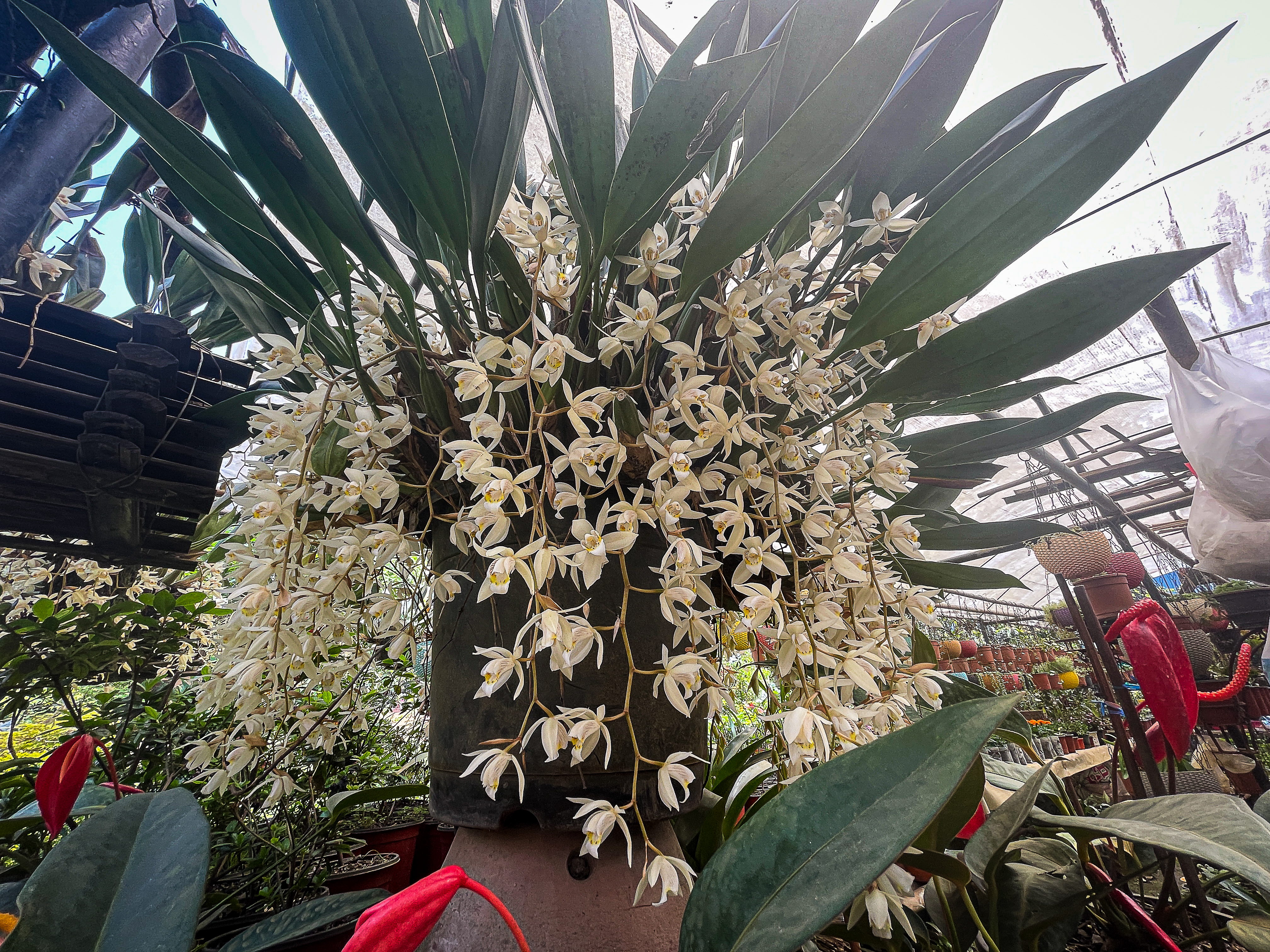
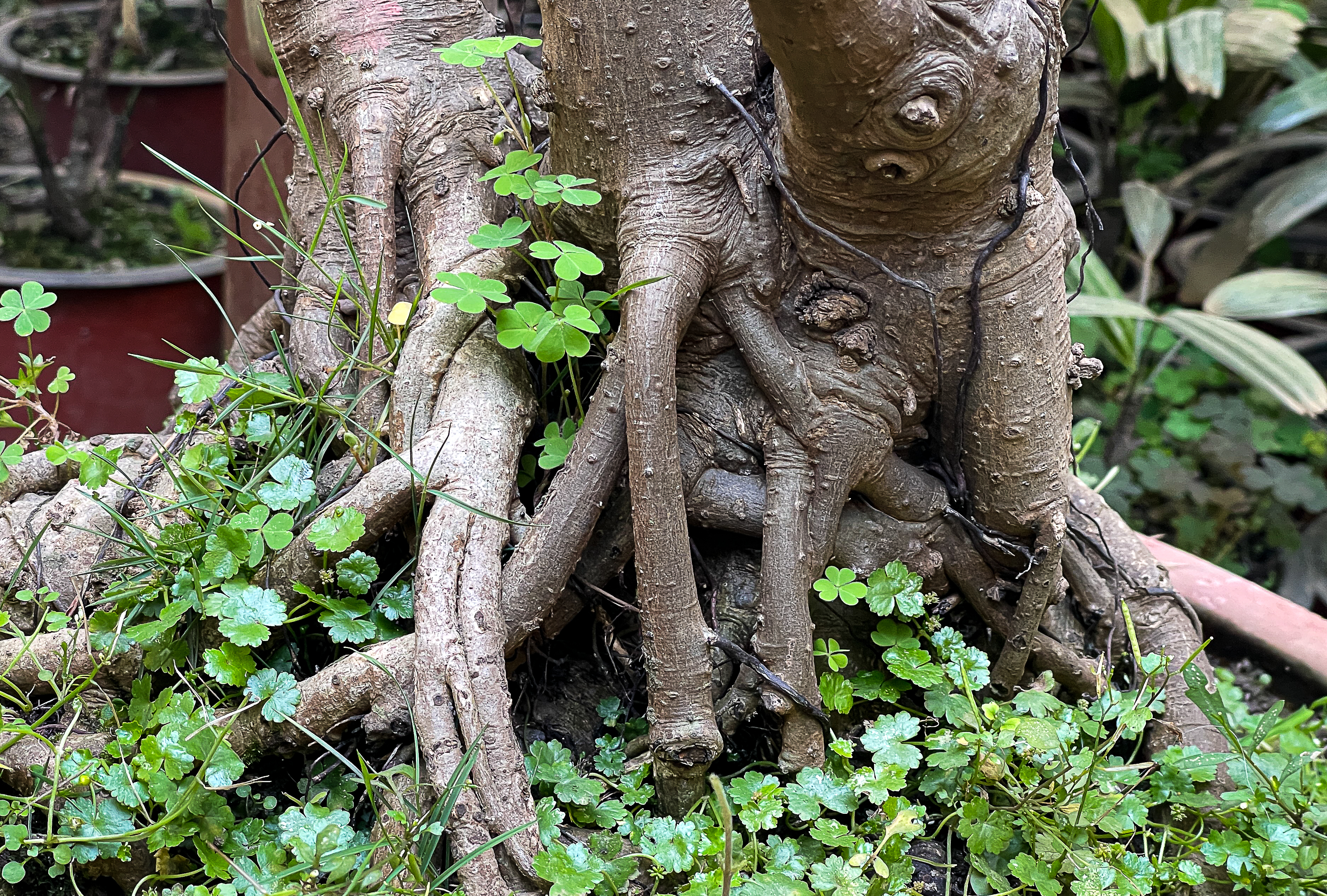
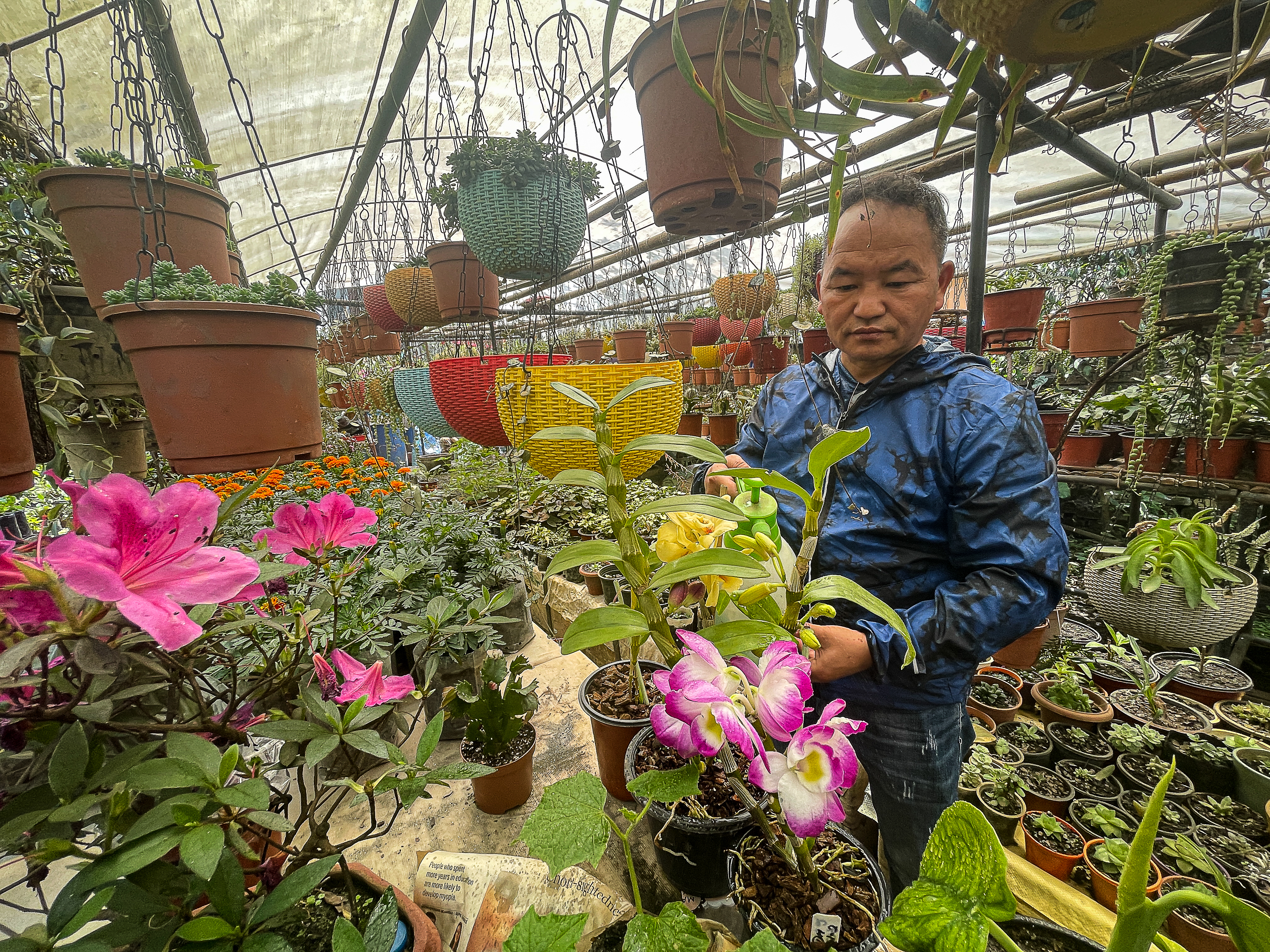
Photo Feature | The traveling traders of Rajasthan
A group of people, including women and children, have been living under makeshift tents on a roadside at Sallaghari in Bhaktapur for the past few weeks. They have traveled all the way from Rajasthan, India, for an annual fair.
They say they have been coming to Nepal every year to attend the same fair, and each time they bring new products. This time, they have brought China-made inflatable bathtubs to sell. The most expensive bathtub is priced at Rs 10,000.
When this photographer visited their living area, the families of these traveling merchants were going about their day: some were attending to their impromptu shops, some were preparing food while others were looking after their children. The footfall of customers also seemed decent. Asked whether the local authorities have tried to vacate them from the area, they say apart from a couple of visits from the local police, there has been no problem. They say they are only here for a few weeks and will return to their home country after the fair.
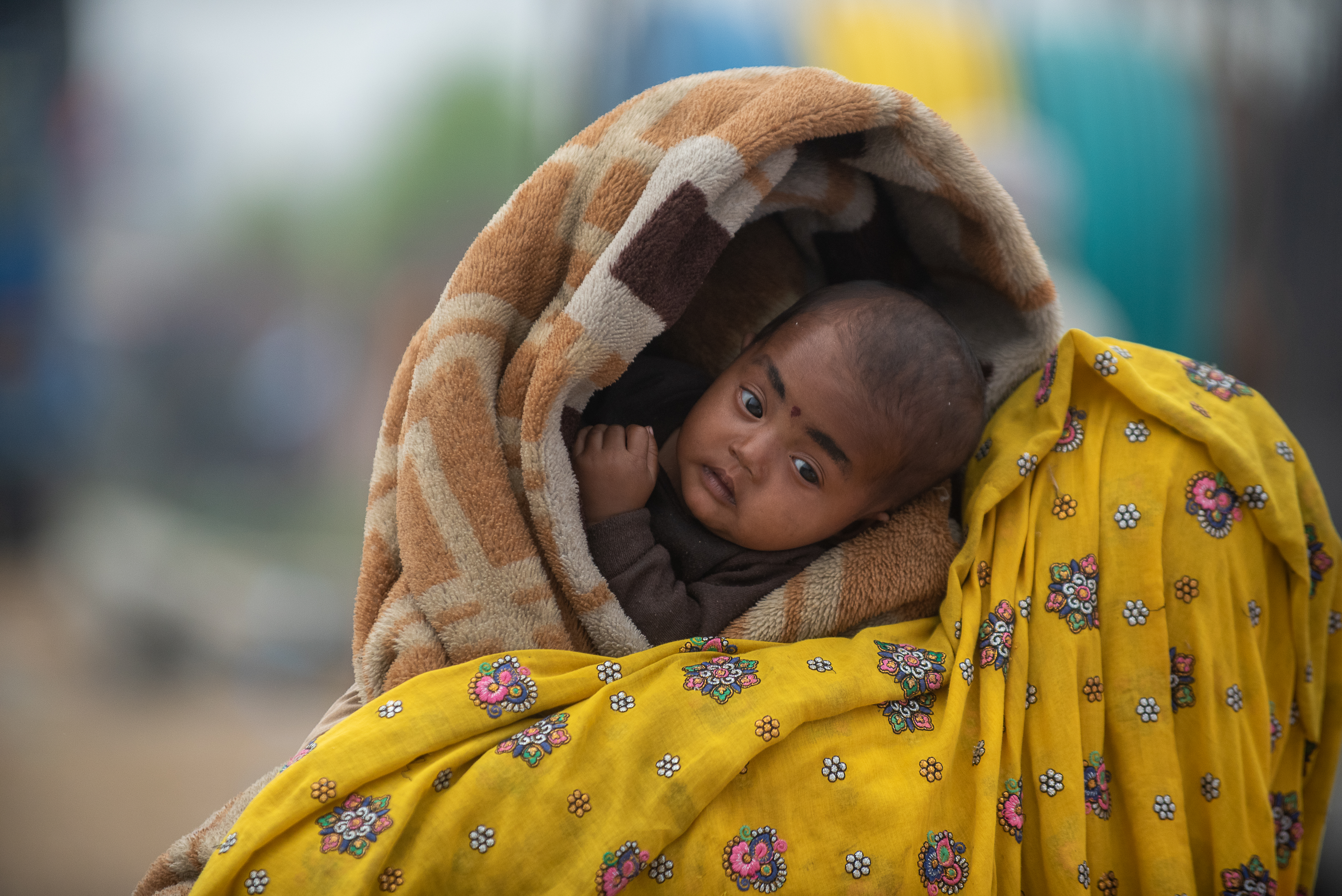
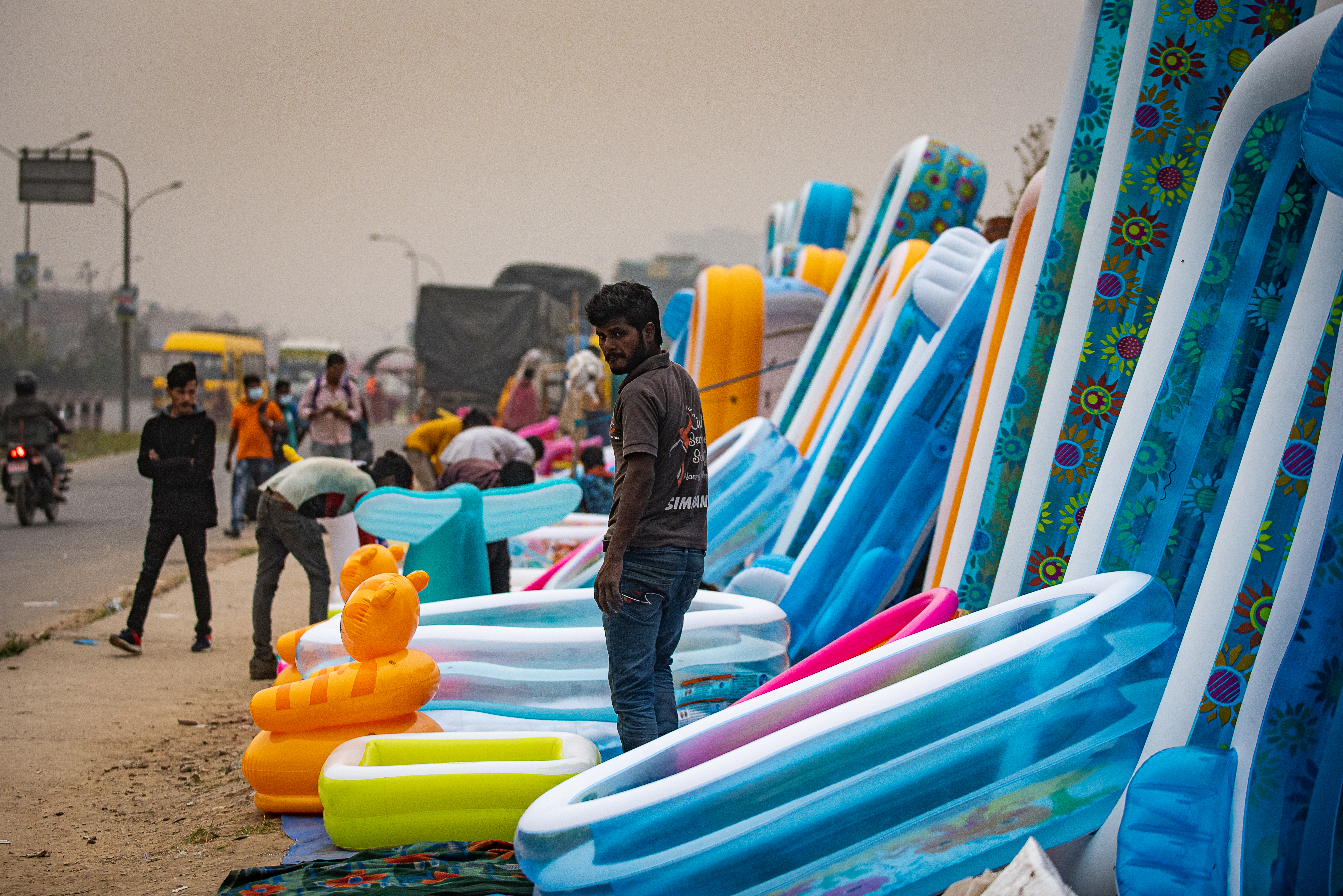
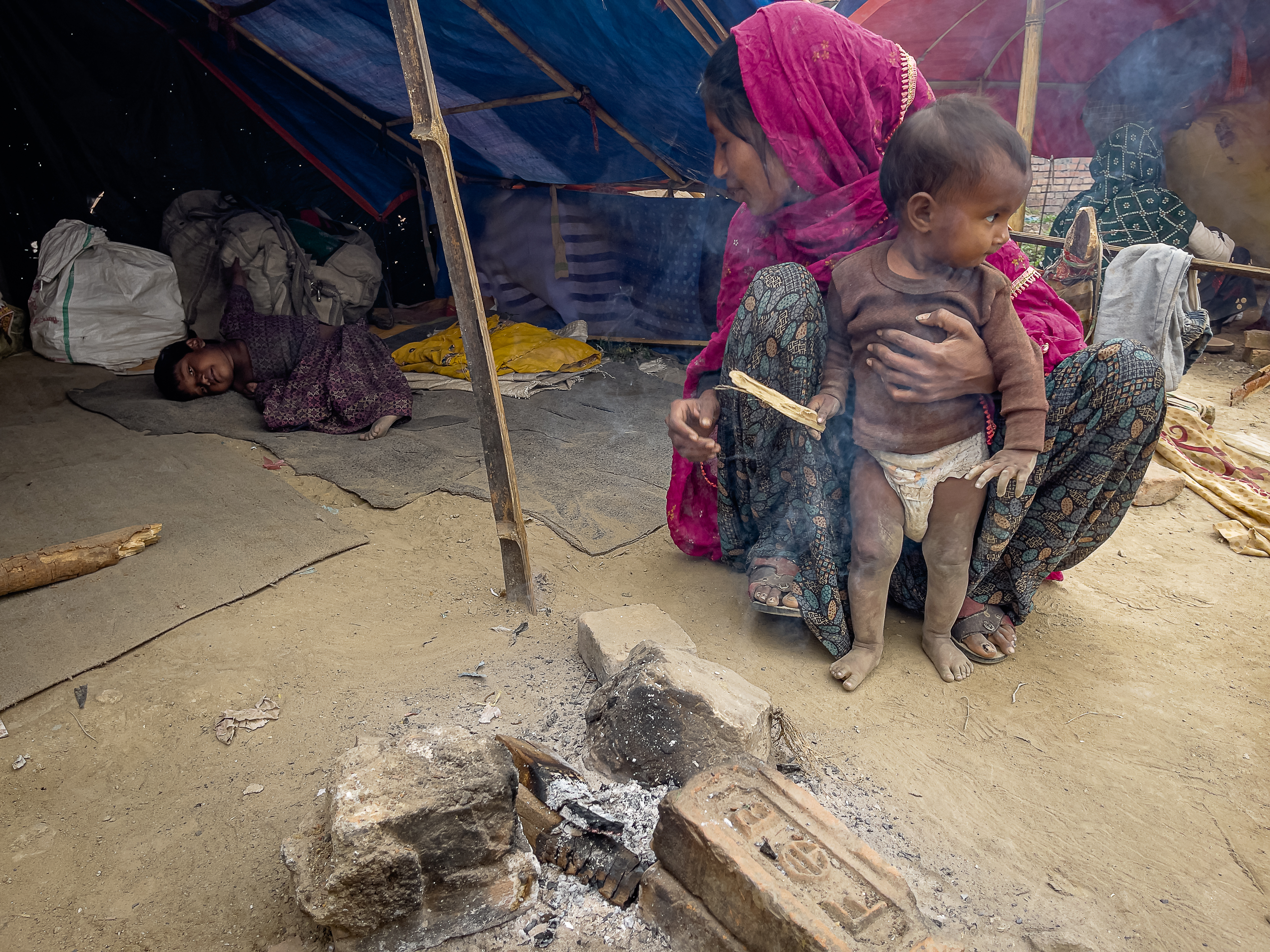
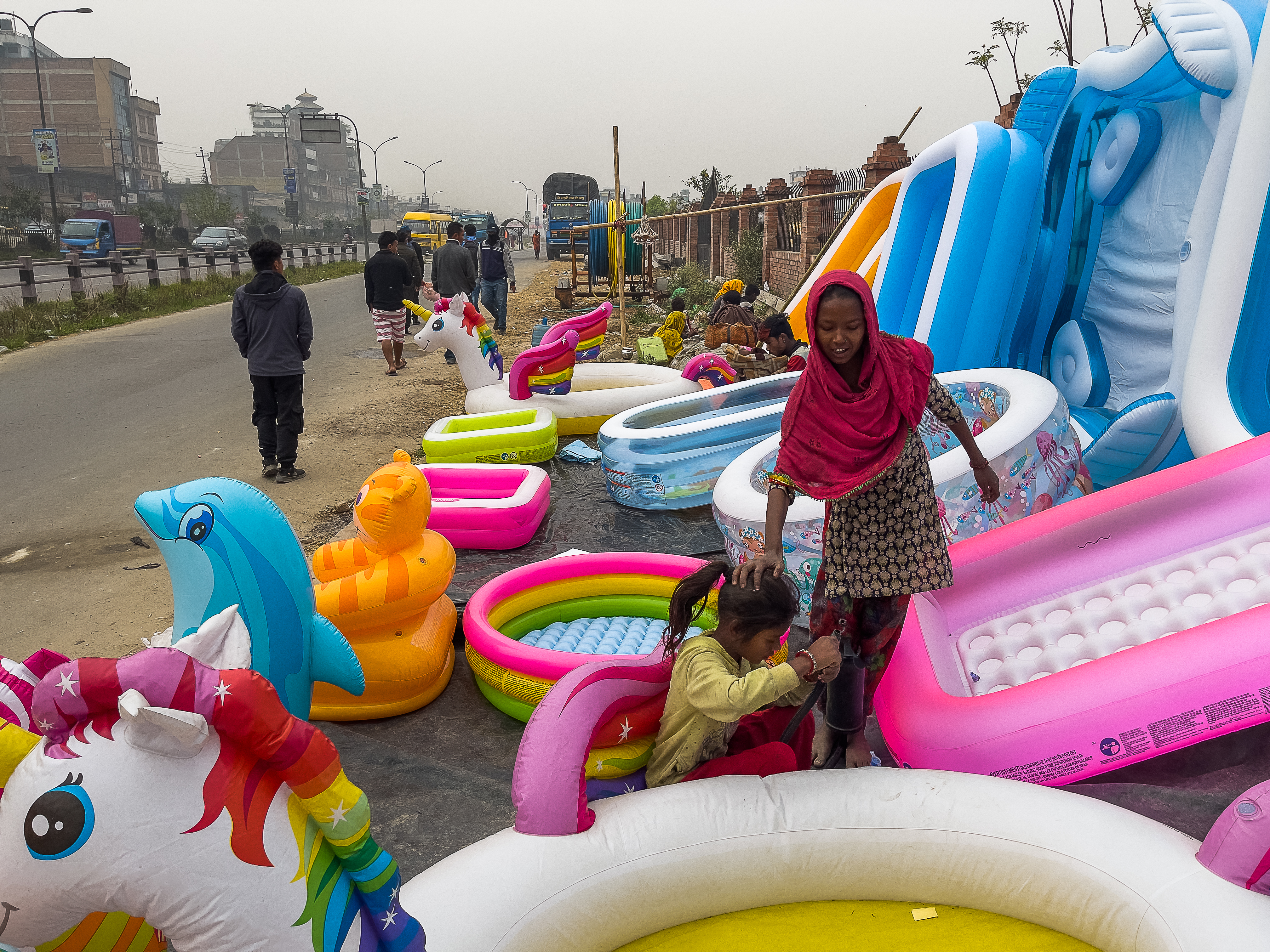
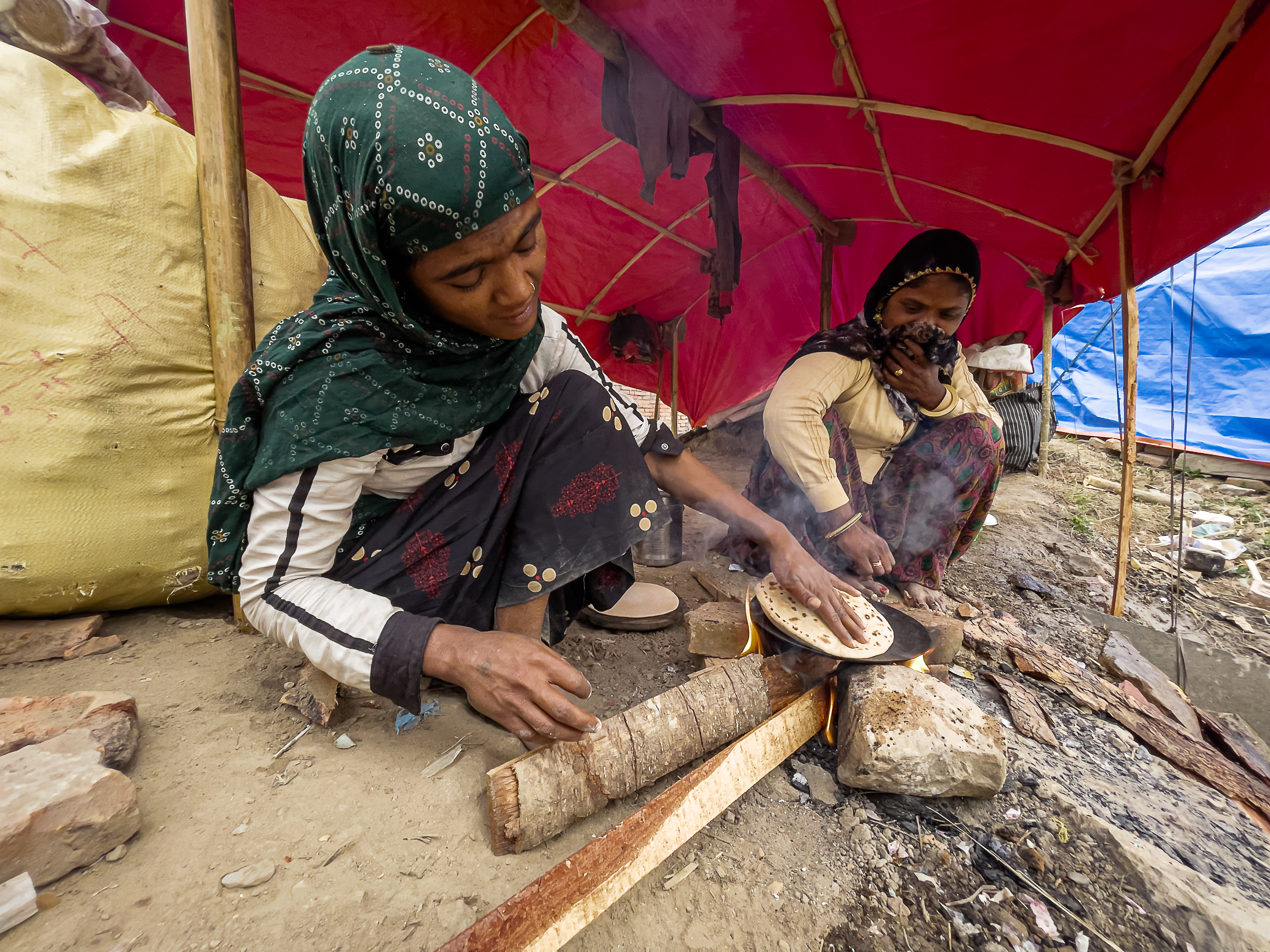
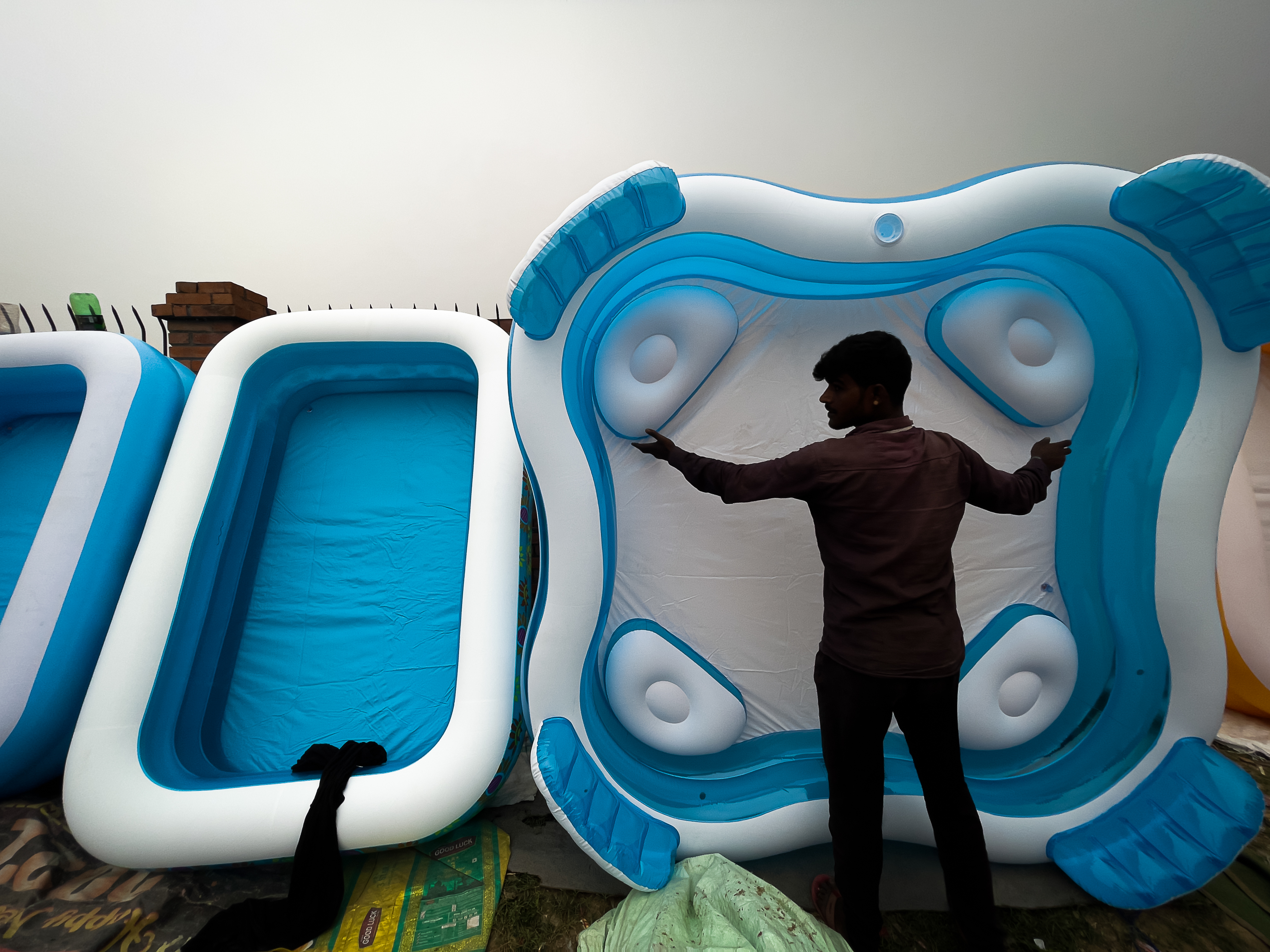
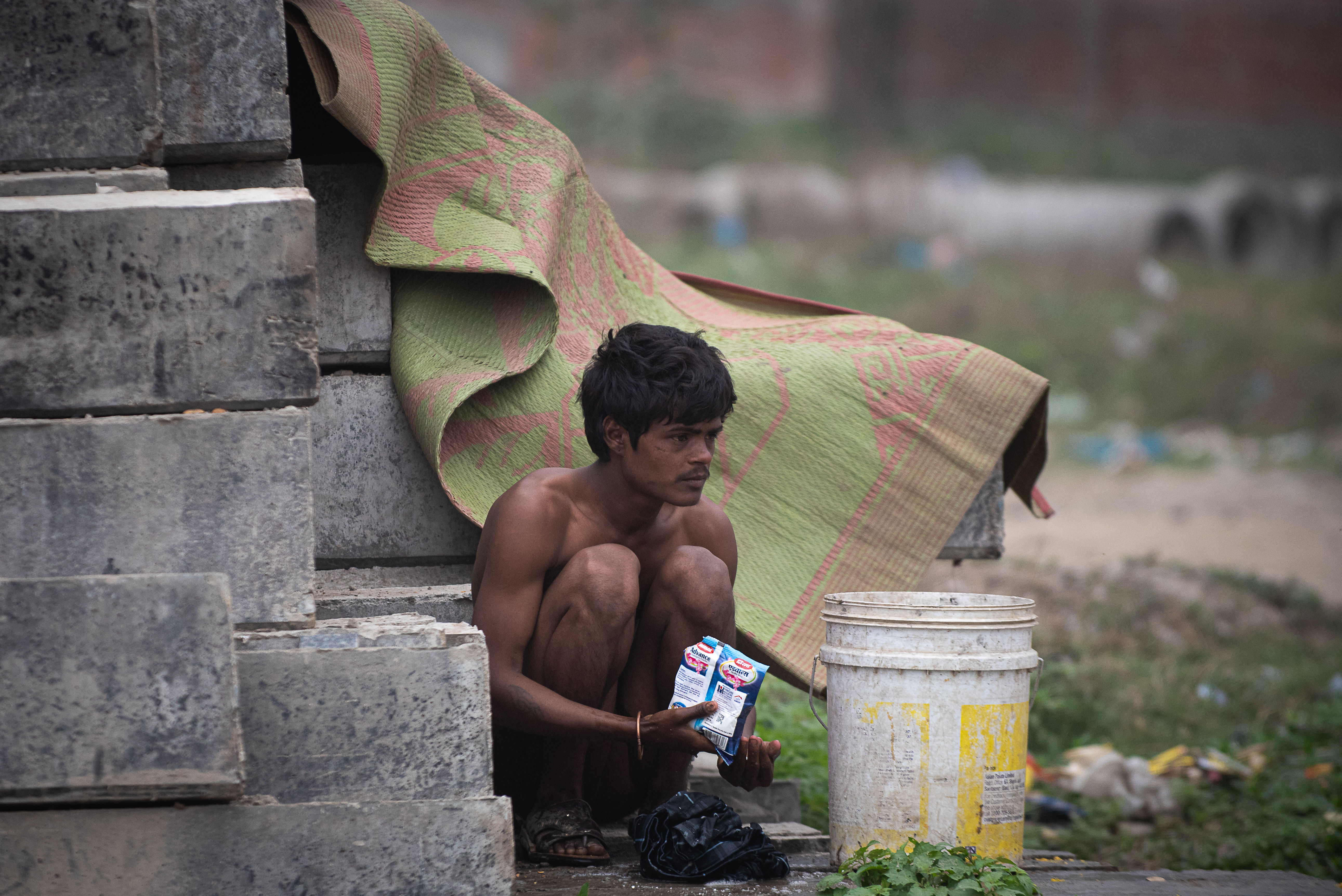
Photo Feature | The traveling traders of Rajasthan
A group of people, including women and children, have been living under makeshift tents on a roadside at Sallaghari in Bhaktapur for the past few weeks. They have traveled all the way from Rajasthan, India, for an annual fair.
They say they have been coming to Nepal every year to attend the same fair, and each time they bring new products. This time, they have brought China-made inflatable bathtubs to sell. The most expensive bathtub is priced at Rs 10,000.
When this photographer visited their living area, the families of these traveling merchants were going about their day: some were attending to their impromptu shops, some were preparing food while others were looking after their children. The footfall of customers also seemed decent. Asked whether the local authorities have tried to vacate them from the area, they say apart from a couple of visits from the local police, there has been no problem. They say they are only here for a few weeks and will return to their home country after the fair.







Photo Feature | Someone’s gotta do it, right?
There are around 300 souls working at this brick factory in Bungamati, Lalitpur. The majority of them are women who hail from outside Kathmandu—and there is a sizable number of Indian workers. Many of these laborers come to work with the entire family in tow, and it is common to see children helping their parents. Most of these children, I learned, did not attend school.
As more and more Nepali men are leaving the country in search of jobs, the women who remain behind have been forced to work as wage laborers, as in this brick factory. The work is demanding, the hours are long, and the pay is scant. During 8-9 hours of daily work, the most demanding part is hauling big stacks of bricks on one’s back for storage or for loading onto trucks for selling.
A worker earns between Rs 600 and Rs 800, the final sum depending on the number of trips they make carrying the bricks. Several studies on these factories have found that the workers there are highly vulnerable to respiratory illnesses like pneumonia and asthma. Workers carrying cooked bricks out of chimneys and those laboring in small workplaces are particularly vulnerable. With no health insurance, falling ill can often be a death sentence.
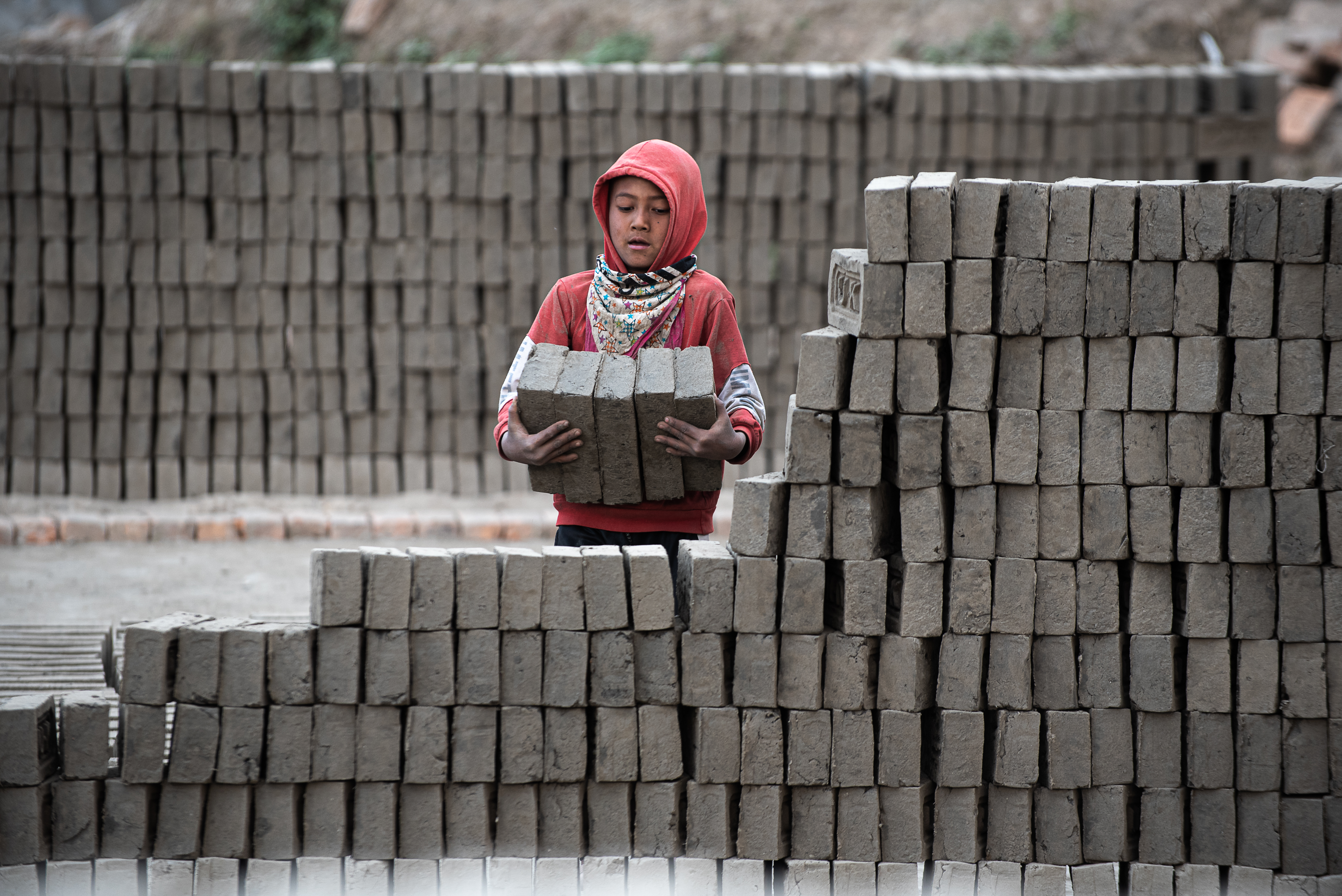
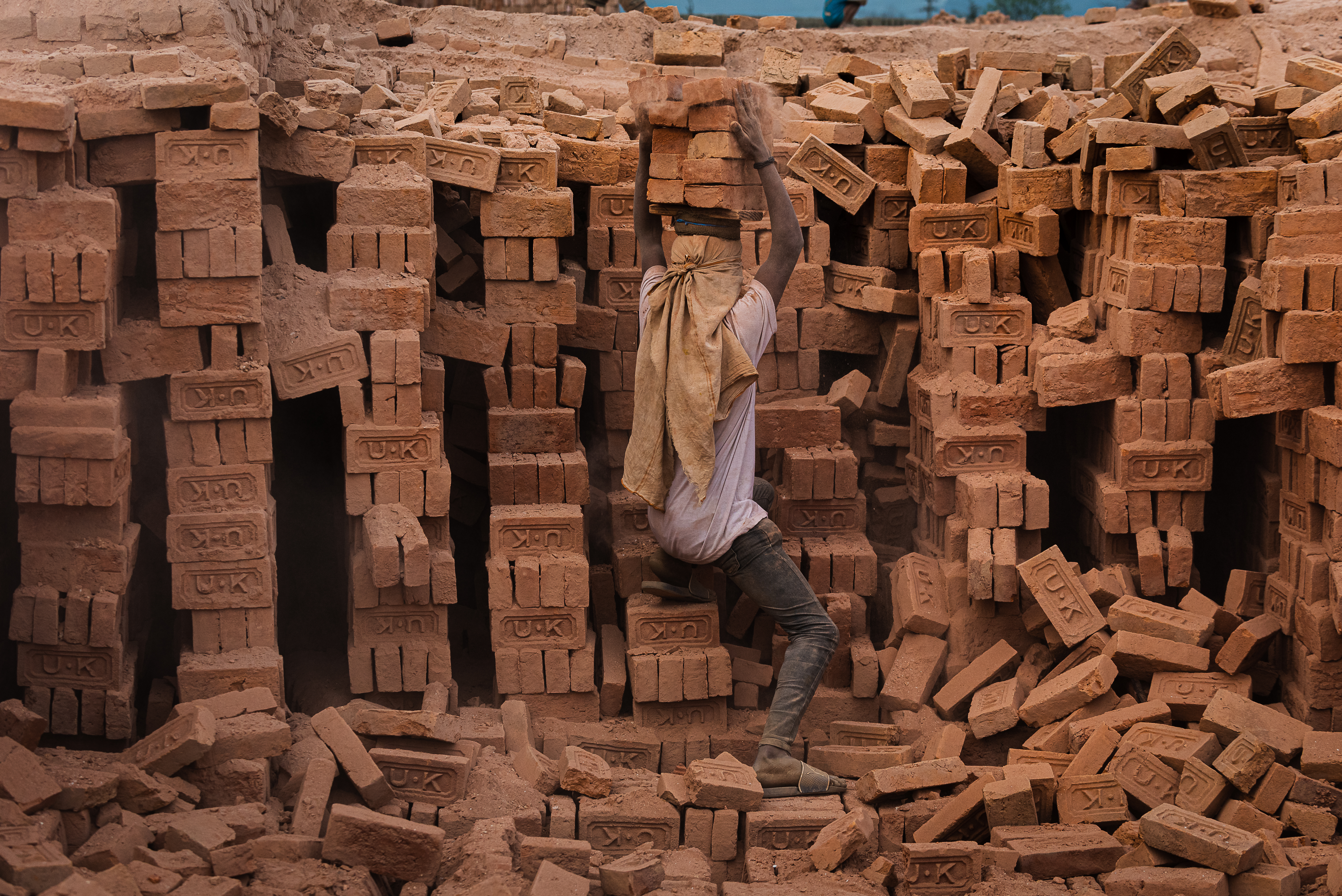
_20220323224349.jpg)
_20220323224348.jpg)
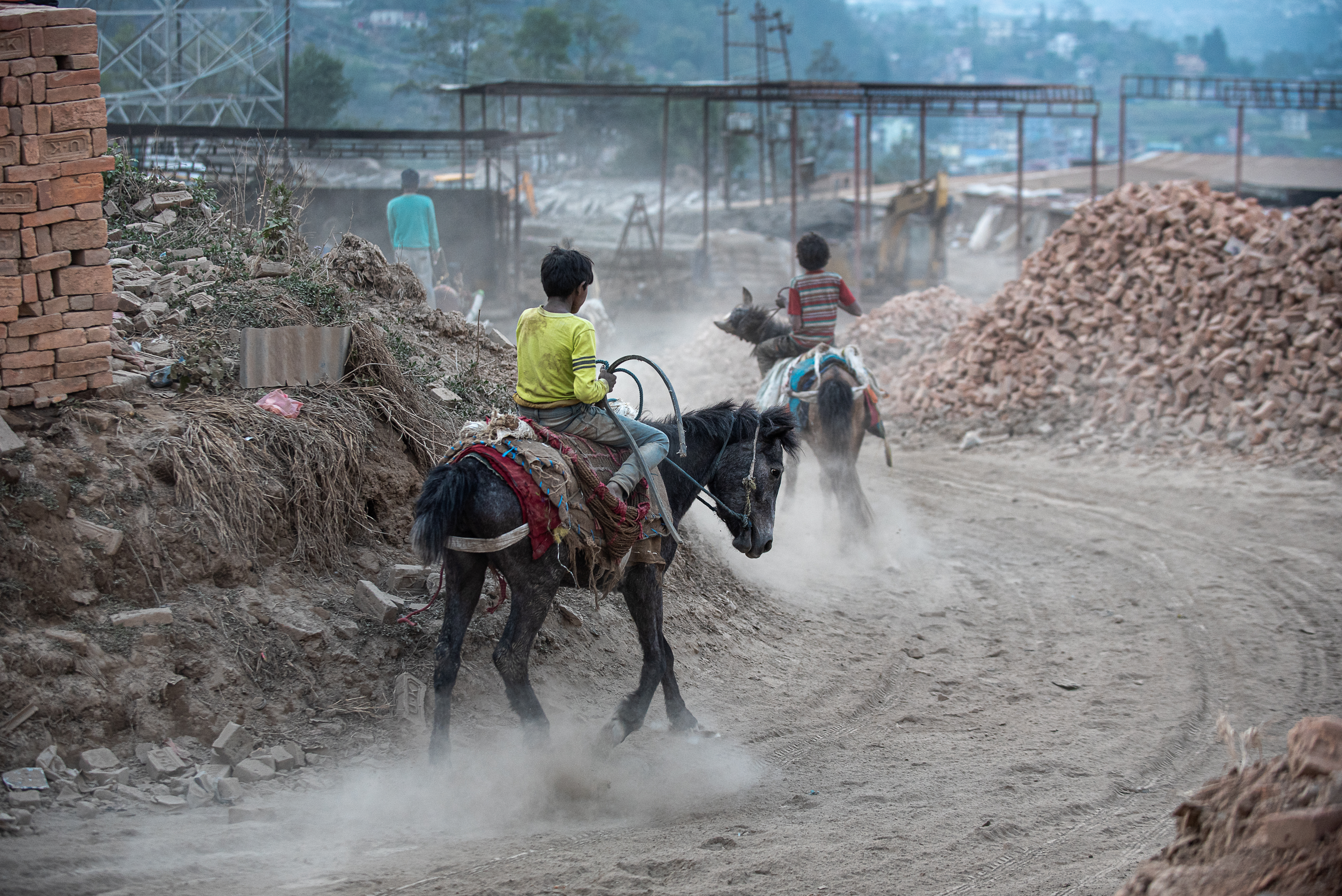
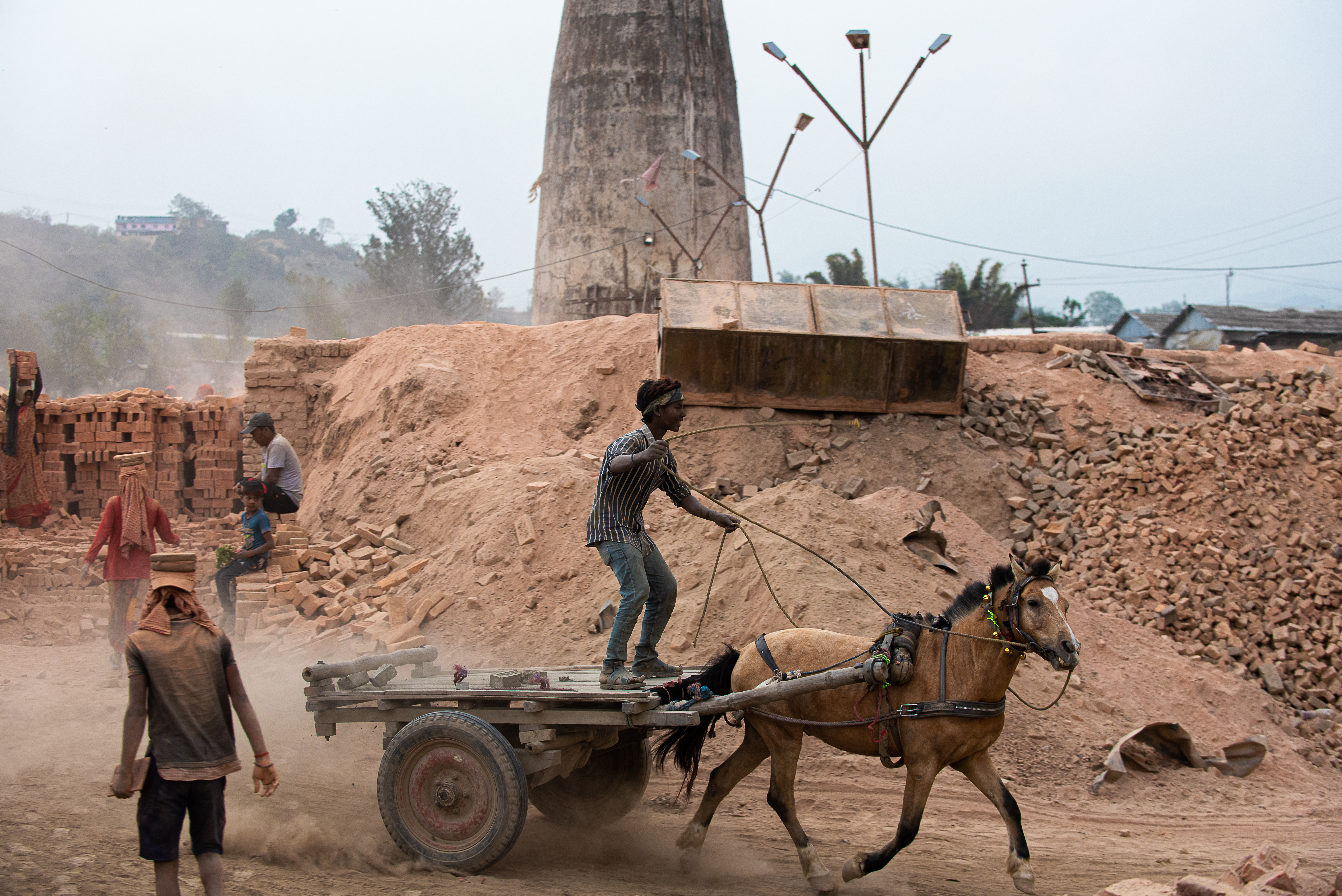
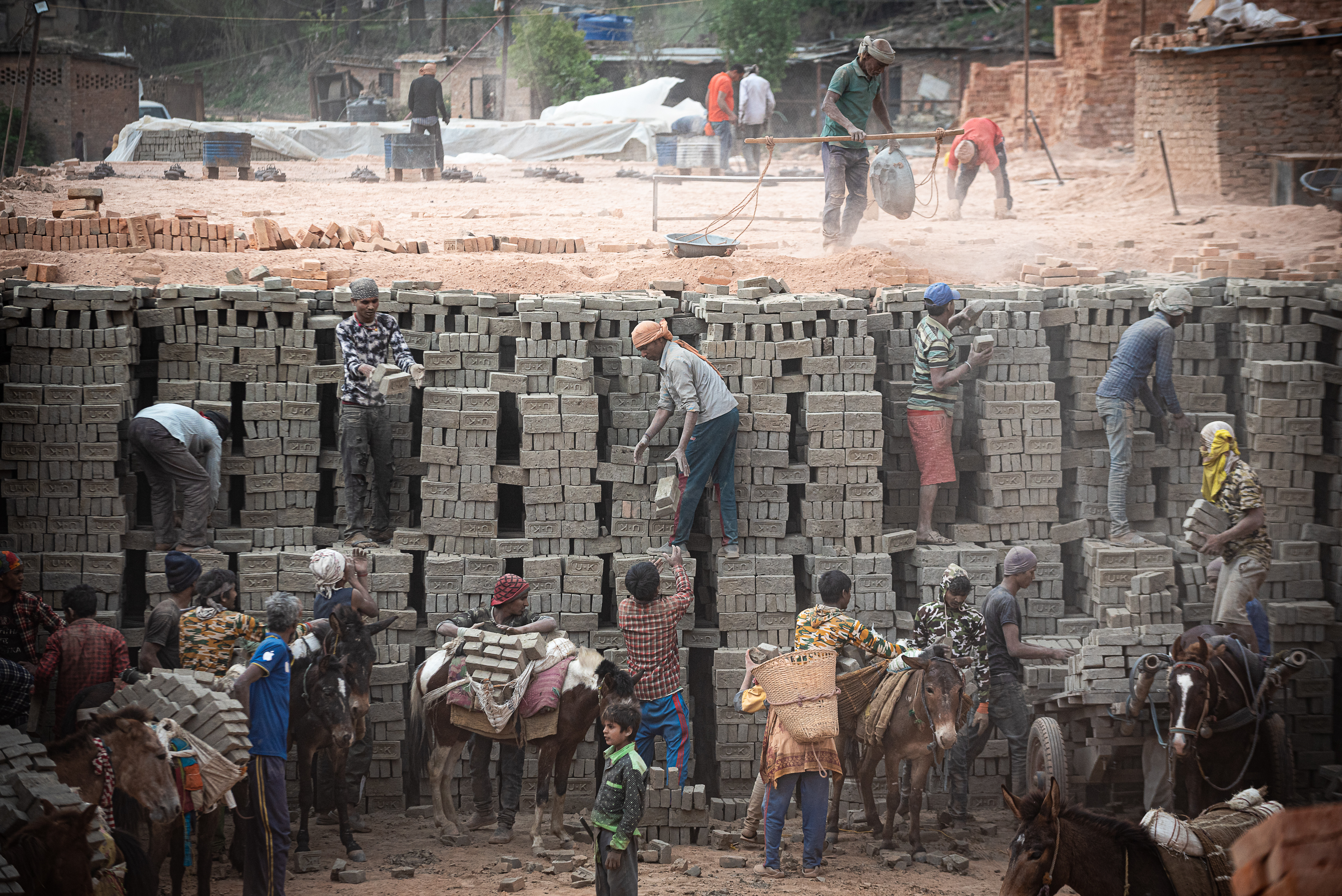
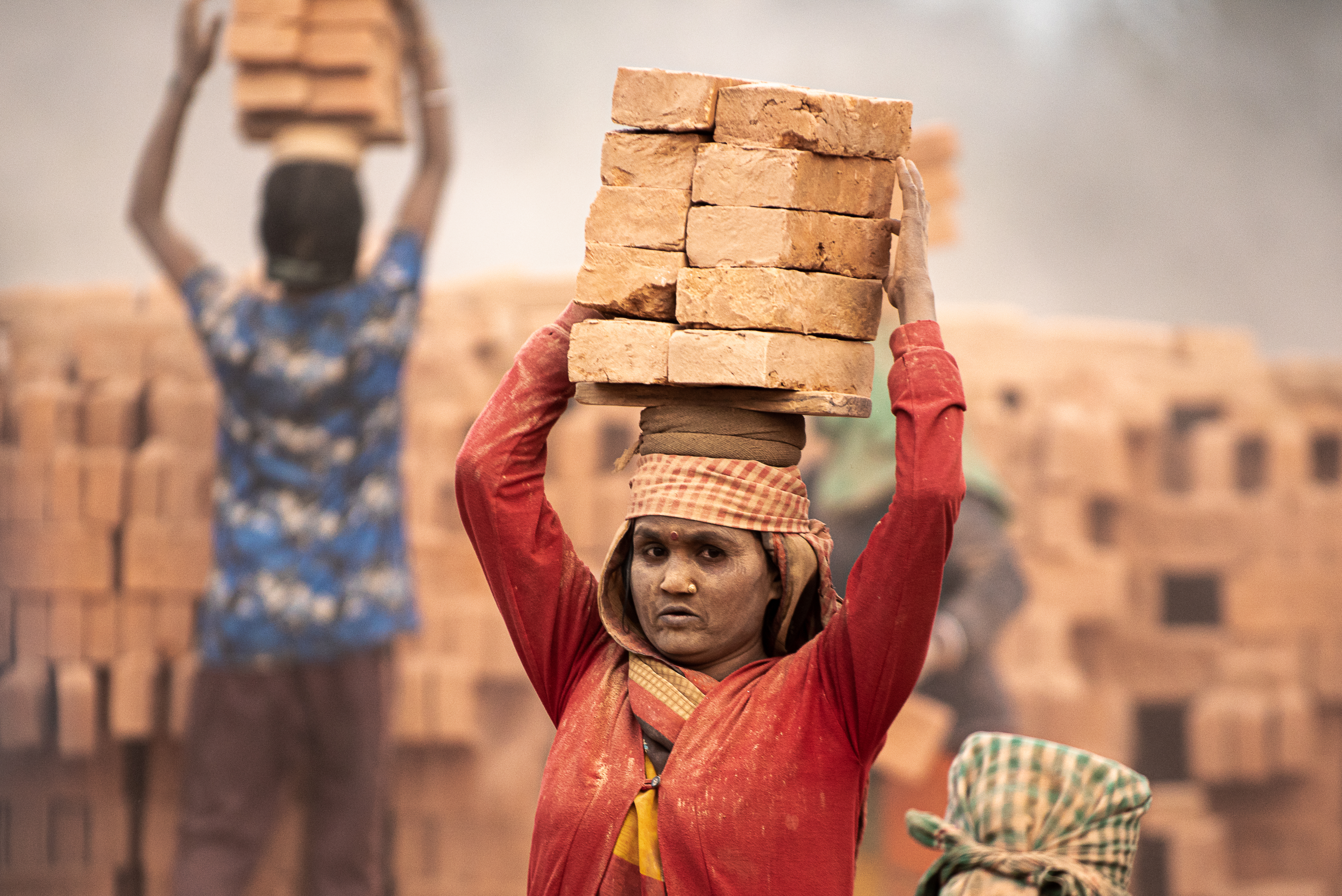
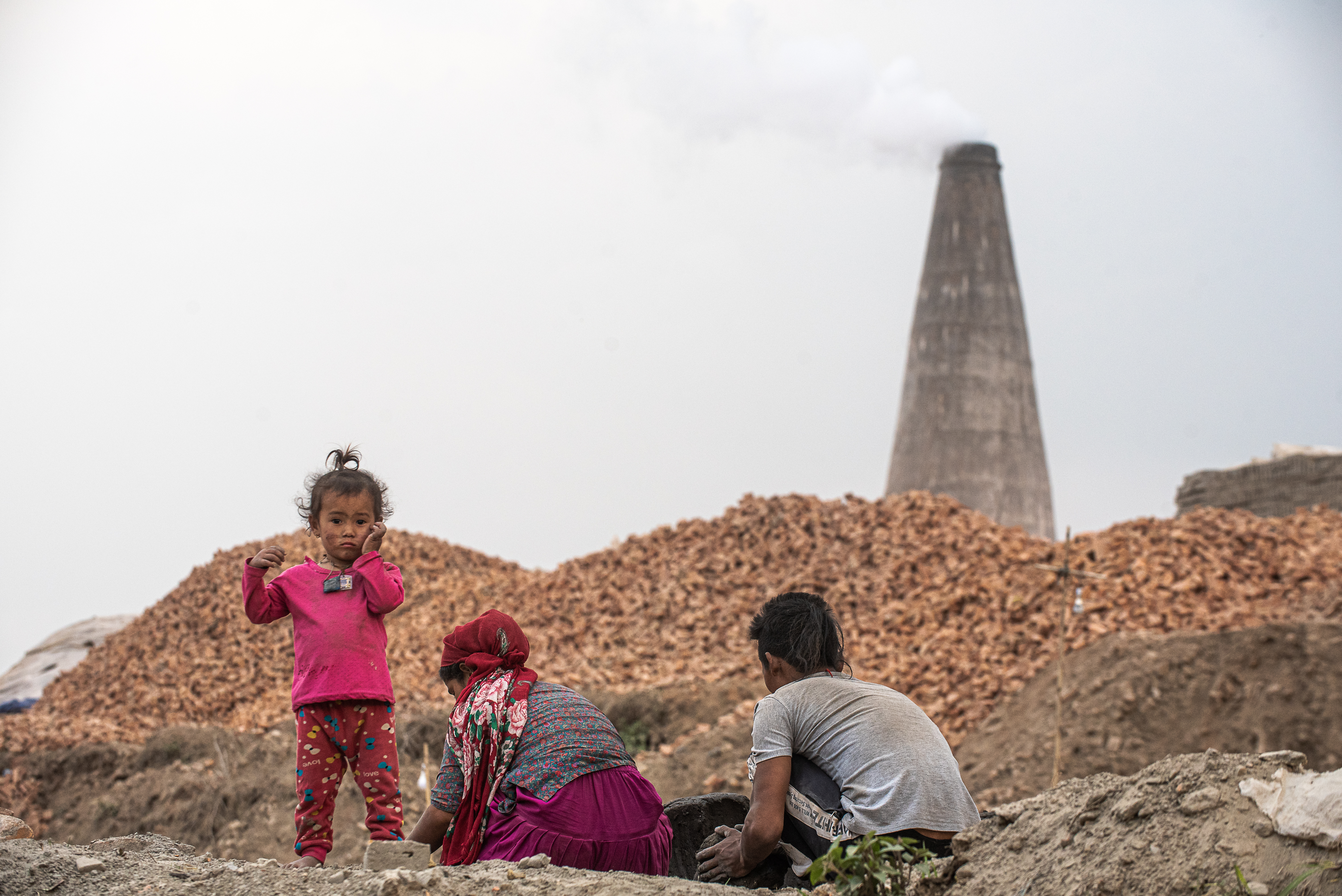
Photo Story | After Ramayan’s eponymous twins rode into K-town
Lov and Kush Roy are twins born 10 minutes apart in Siliguri of India’s West Bengal state. The brothers left their ancestral home when they were young and came to Kathmandu in search of work. That was nearly two decades ago.
After coming to Kathmandu, they took up various odd jobs to survive. For years, Lov and Kush worked as car mechanics, jewelry shop assistants and construction laborers, until they had saved enough money to open their own motorcycle workshop.
Lov-Kush Motorcycle Workshop at Sinamangal has been in business for nine years now. The shop also employs three workers. The twins, 27, say they are self-taught mechanics and they are passing on the skills to youngsters. The workshop opens at 7 am and closes at 10 pm. The Roy brothers also offer a 24-hour motorcycle mechanic service. The work is hard, but it’s also fulfilling, say the two brothers.
I captured some glimpses from their hardscrabble lives this week. The photos show the twins at their workplace and their home.
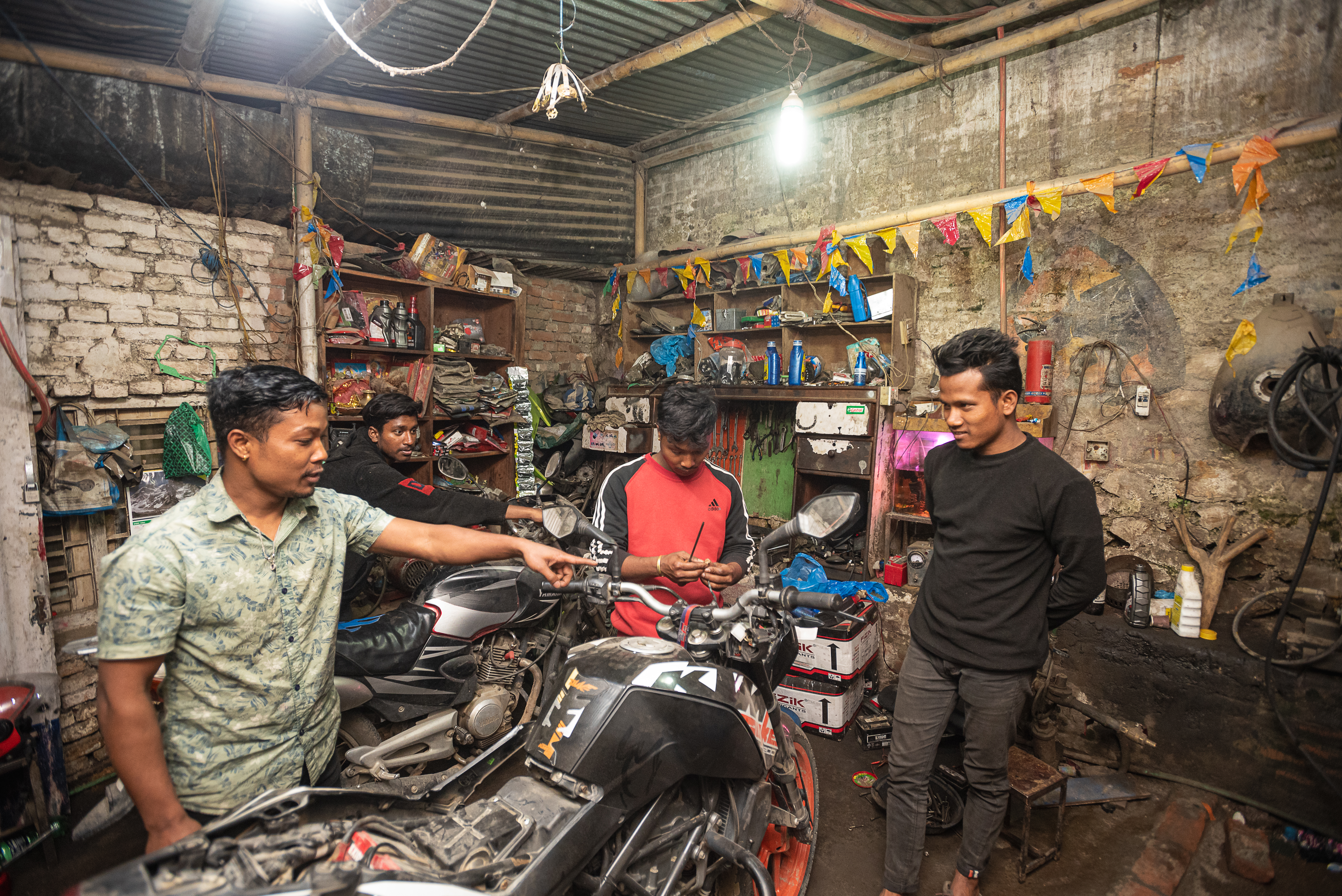
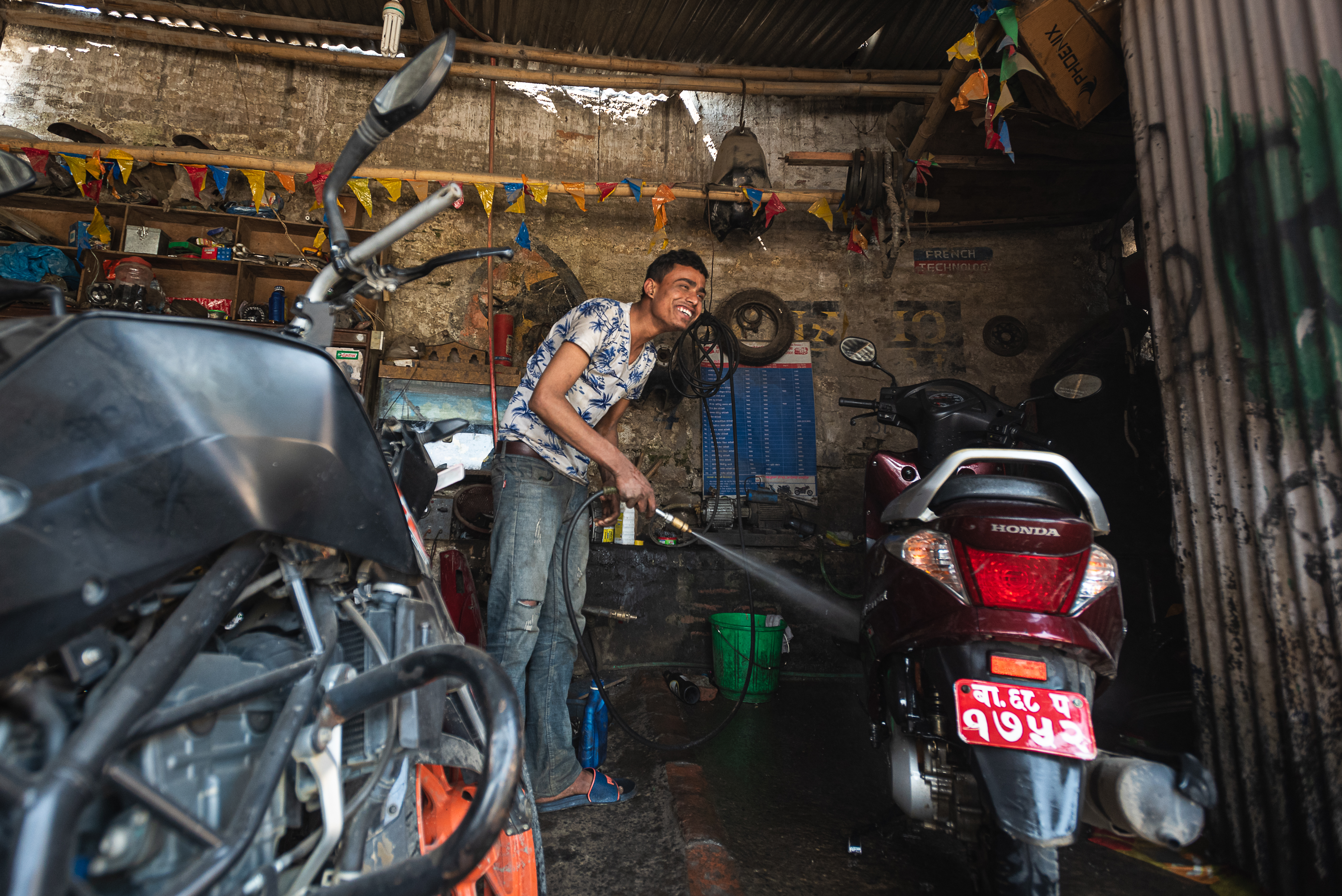
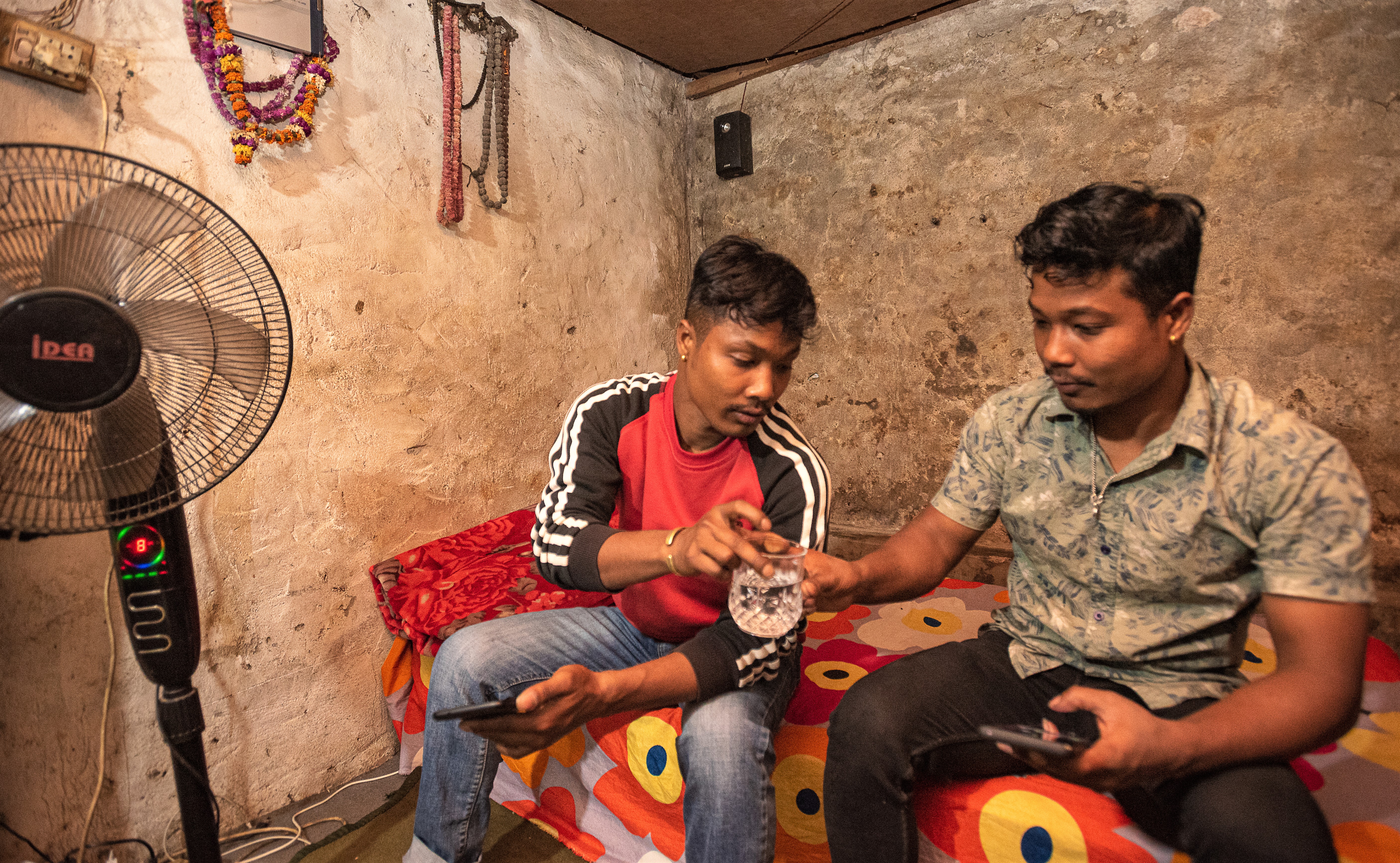
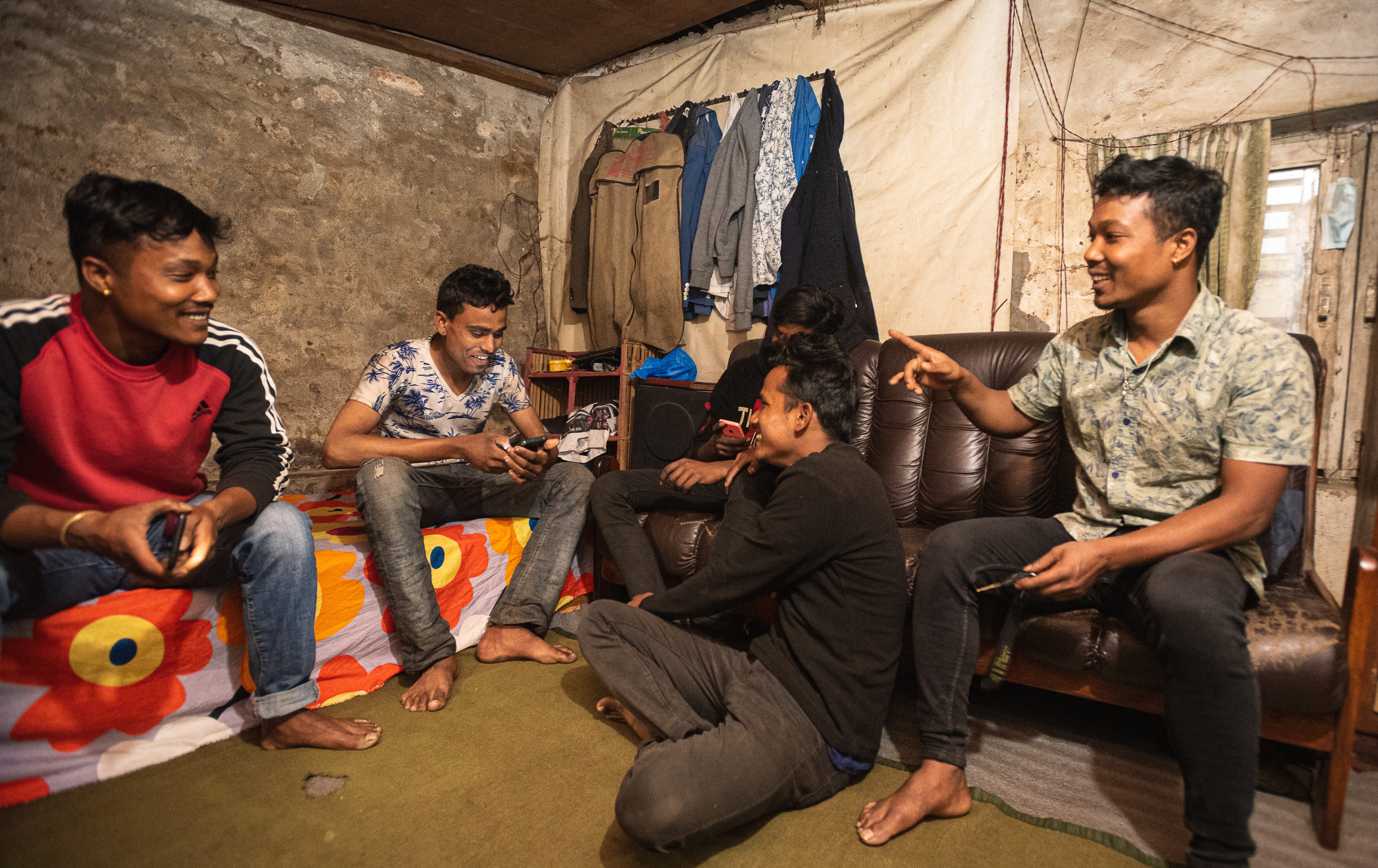

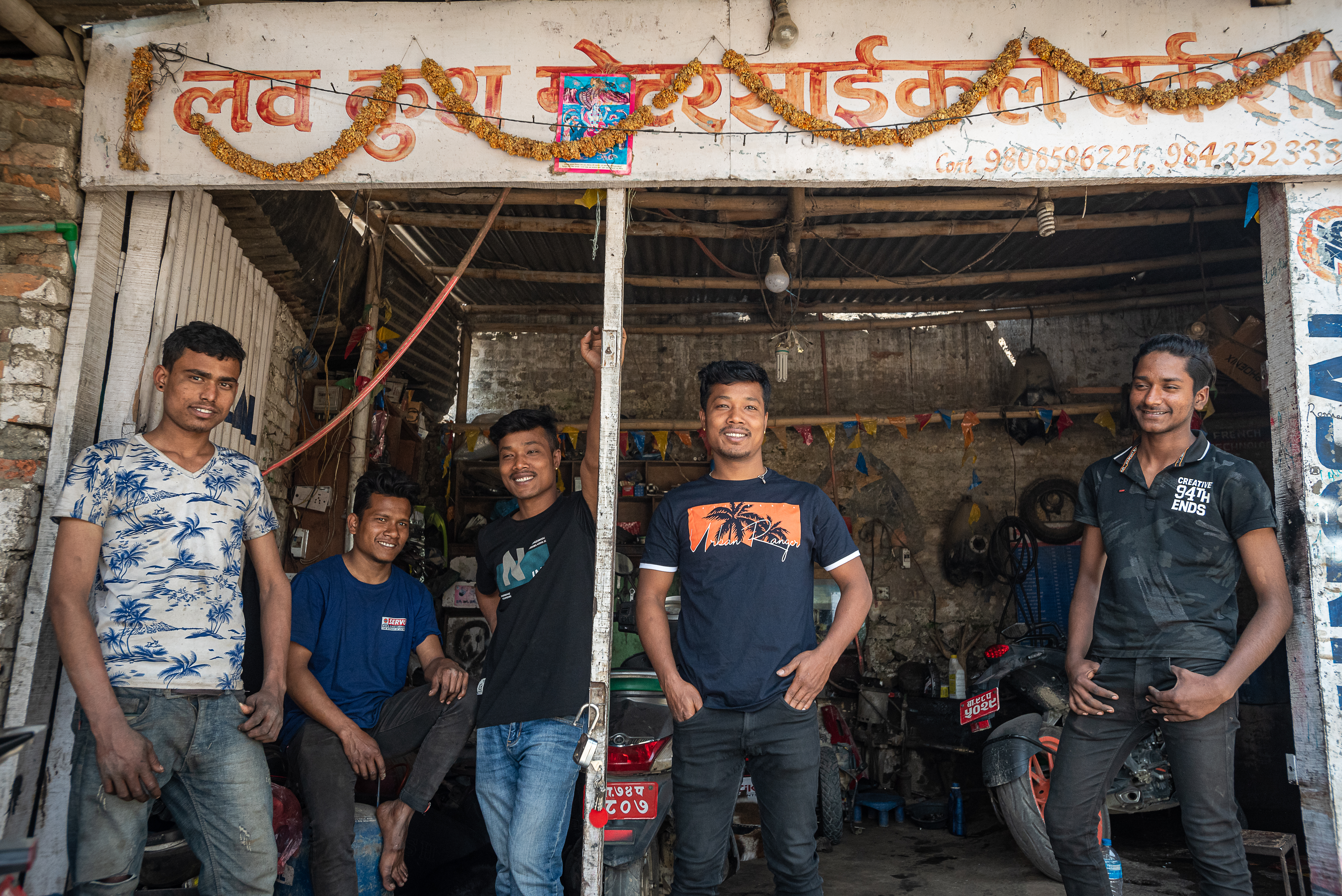
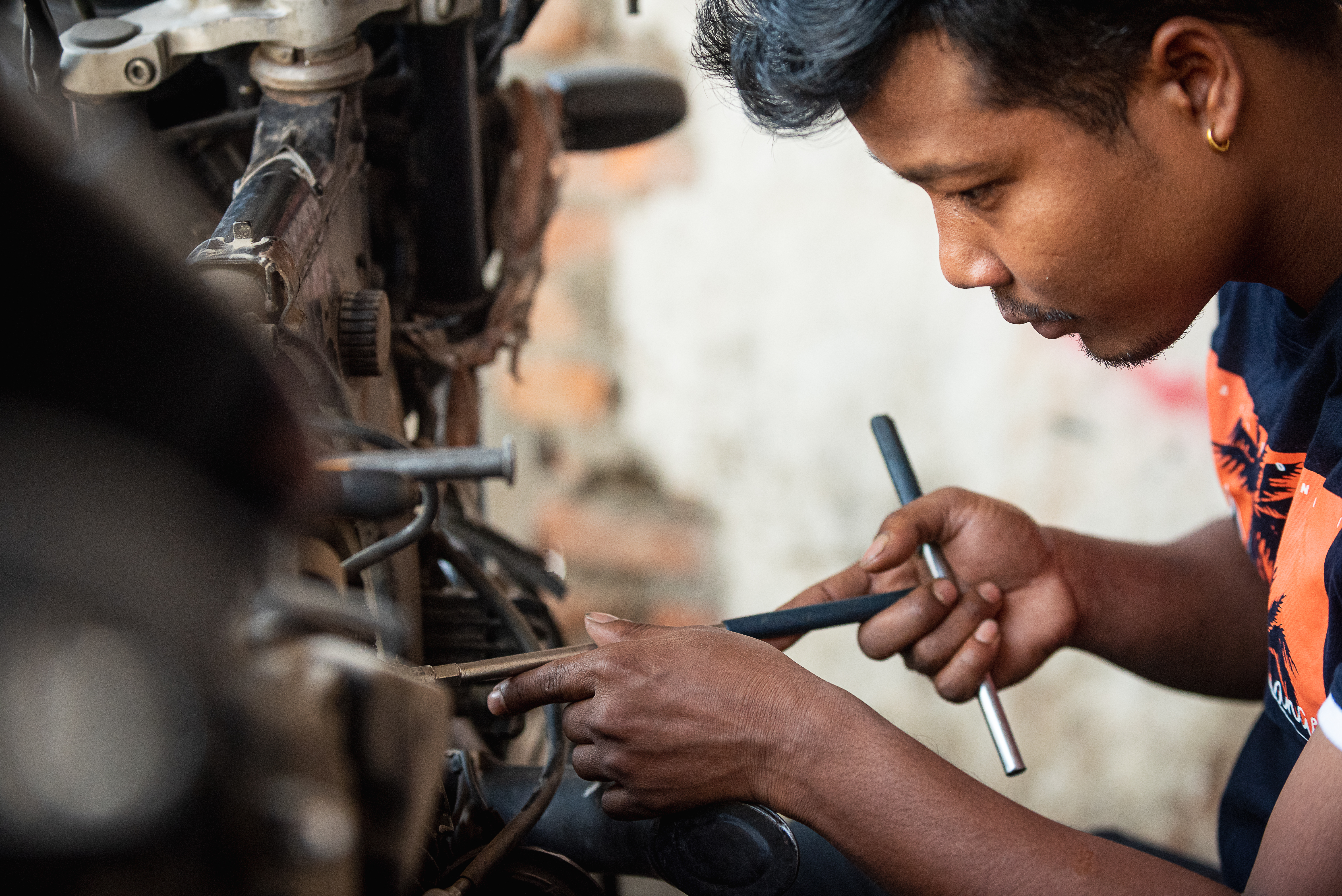
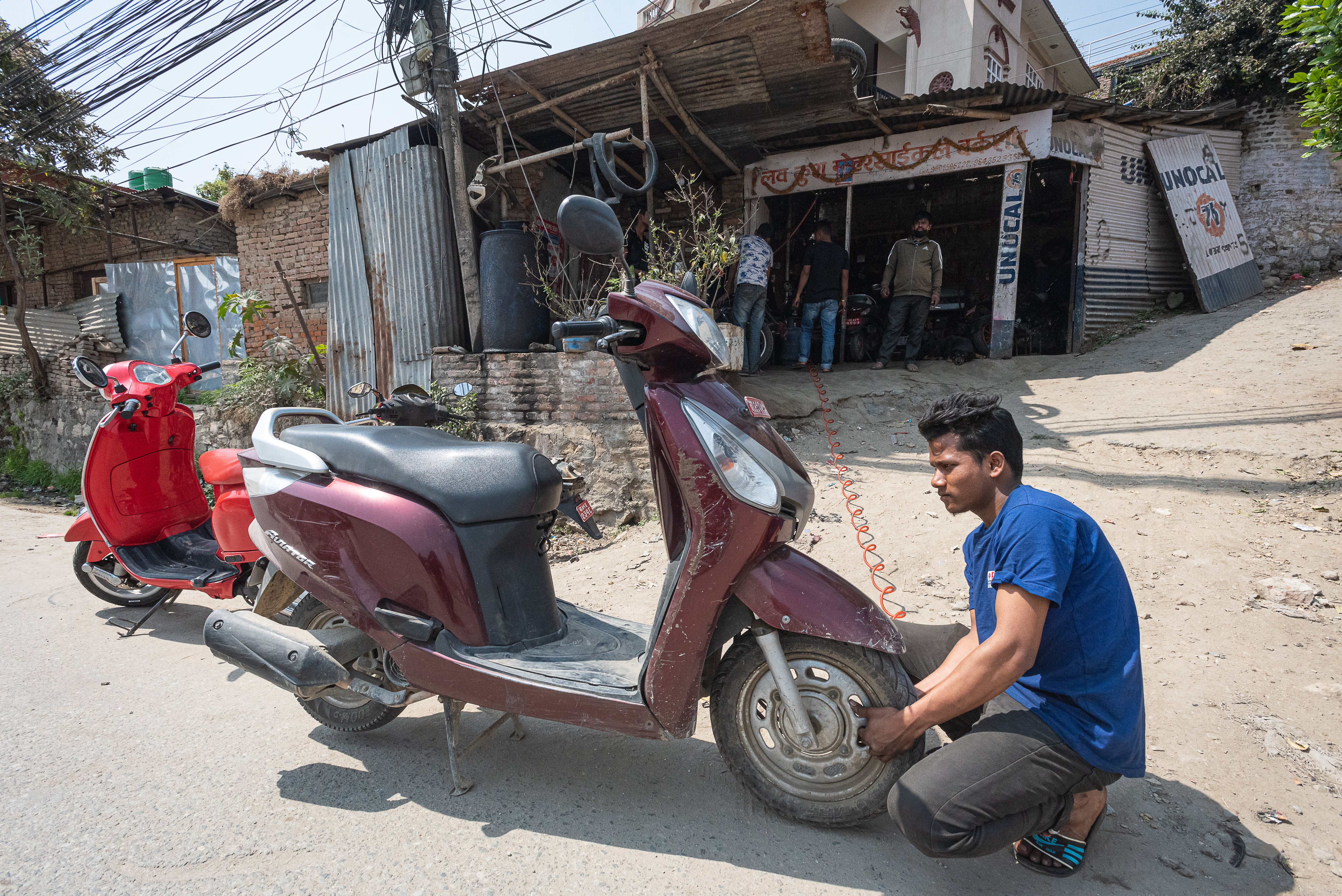
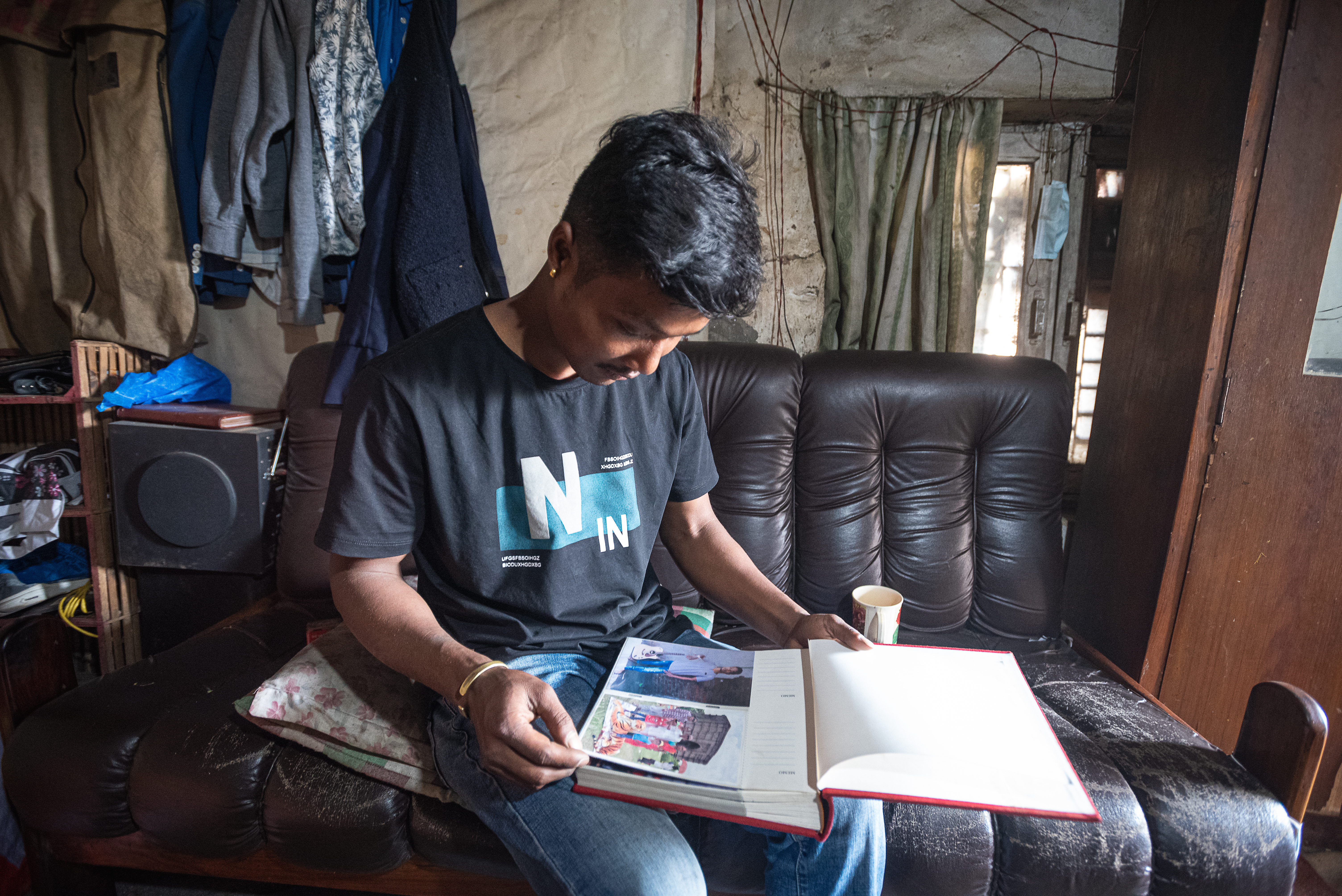
Photo feature: Hiking to Bishnuduwar
Inside the Kathmandu valley, the Shivapuri National Park is considered one of the most convenient and accessible destinations for nature exploration. Located at the Shivapuri hill, Bishnudwar is a hidden gem awaiting exploration. It is the place of the origin of the Bishnumati River, one of Kathmandu’s major conduits. Bishnumati (“Beloved of Lord Bishnu”) has great religious and cultural significance for Hindus and Buddhists alike. By the same token, so has Bishnudwar (“The door from where Bishnumati begins”).
Located at the height of 1,950 meters, the hike to Bishnudwar starts from Budhanilkantha, Kathmandu. You can find a public vehicle or take your own private vehicle up to the Budhanilkantha temple area. A half hour walk will take you to the entrance of the Shivapuri National Park, where you pay Rs 100 entrance fee. After entering the national park, you walk towards the Shivapuri Hill, enjoying the fresh forest air. There are different routes with signboards to guide you inside the national park. Follow the signs to hike towards your destination.
Depending on your speed, a two-or-three hour hike will take you to the view point from where you can get a picturesque view of Kathmandu. Another one and half hours will get you to Bishnudwar. There are many hollow humid caves in the area and the river arises here, taking the form of a beautiful waterfall. Everything about this place is fresh and natural. From Bishnudwar, you have the option of either walking downhill or continuing your hike towards the Shivapuri peak.
